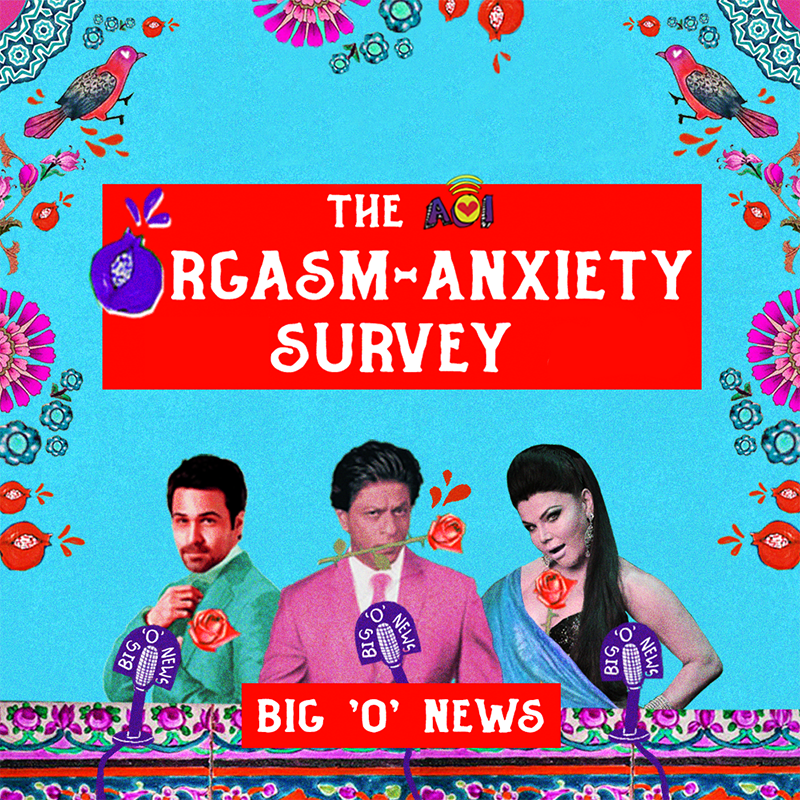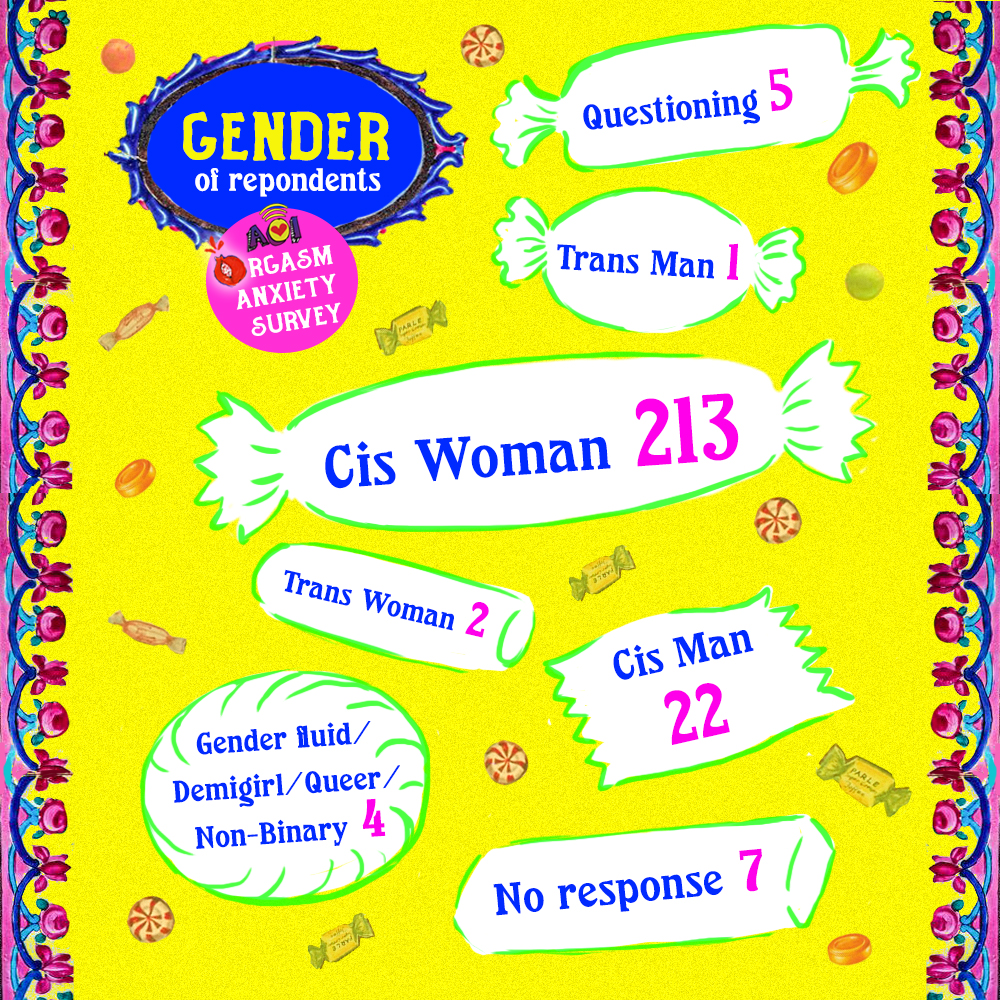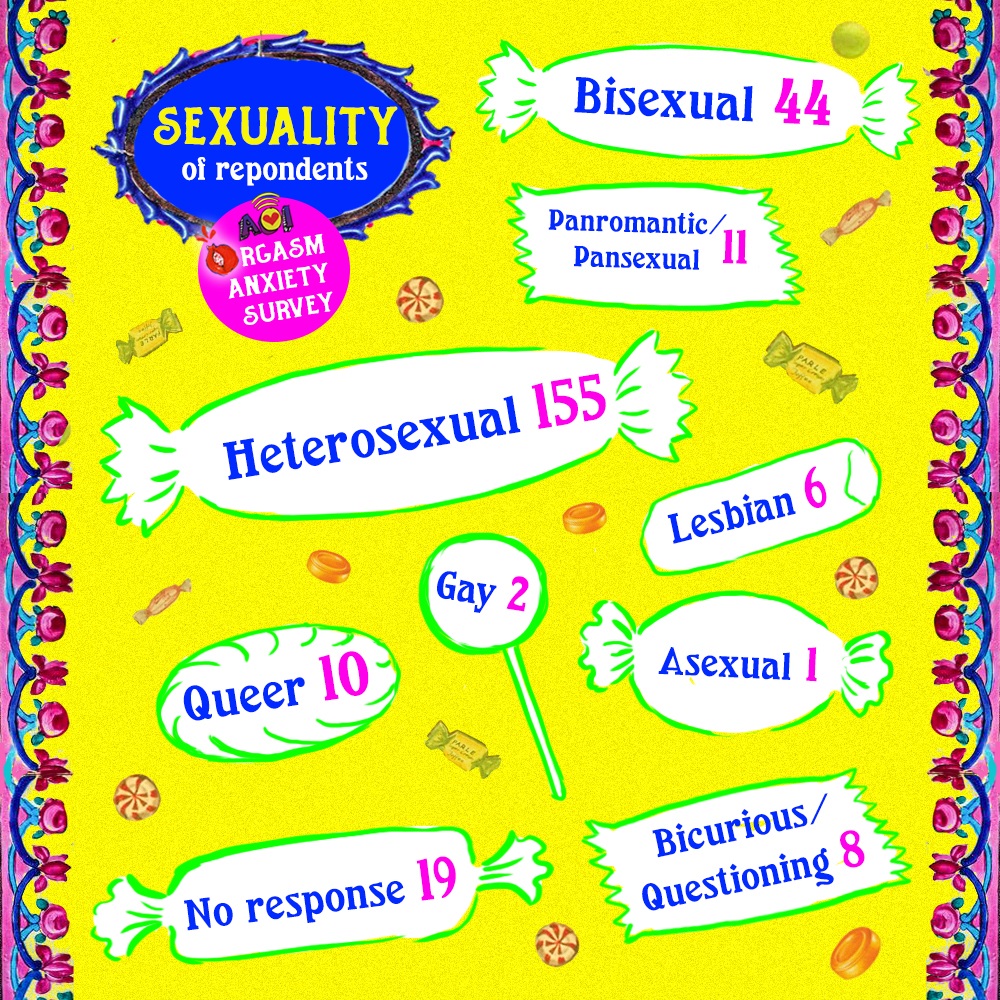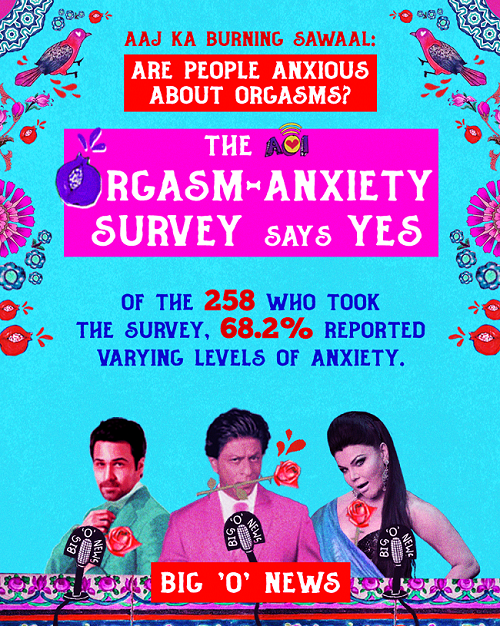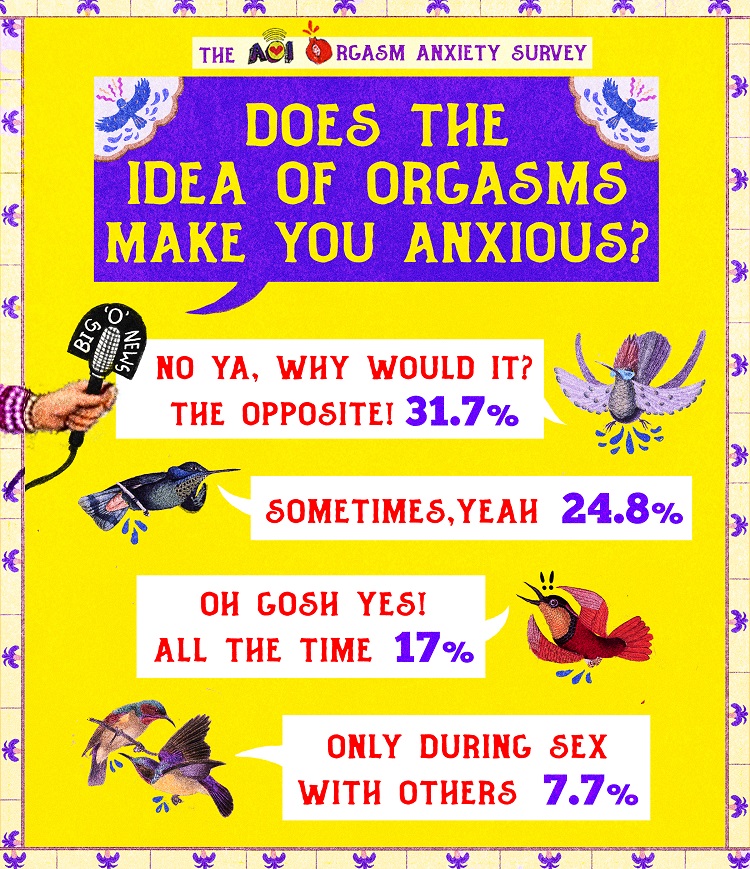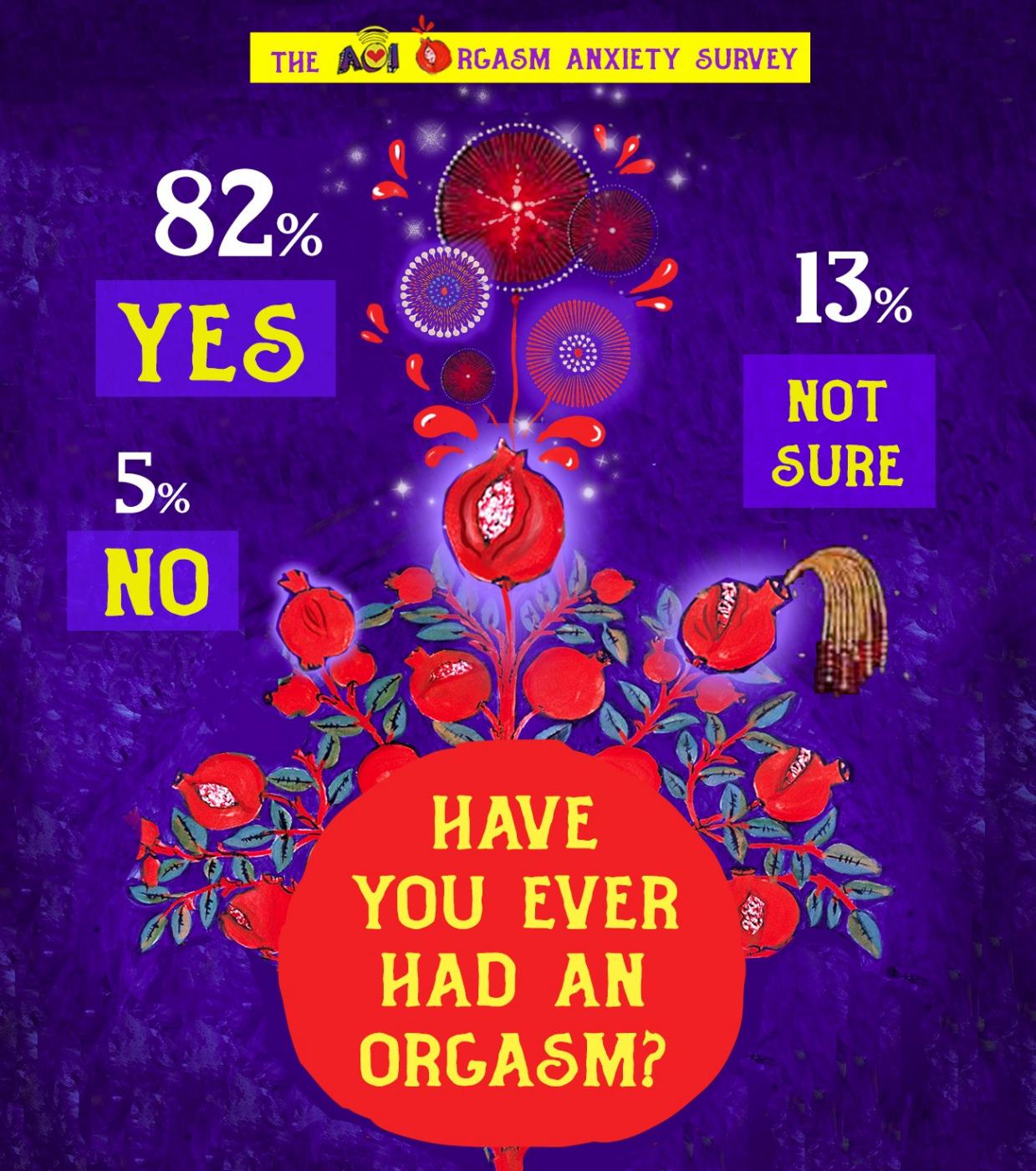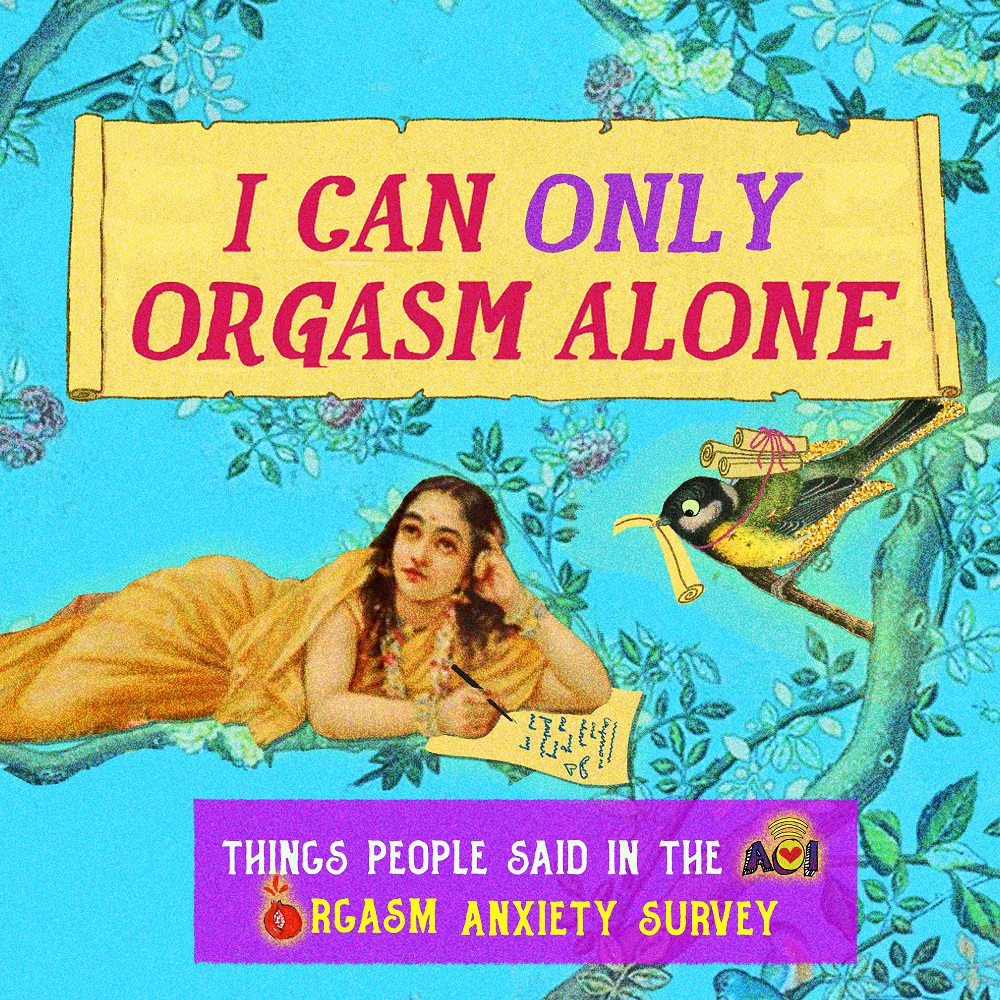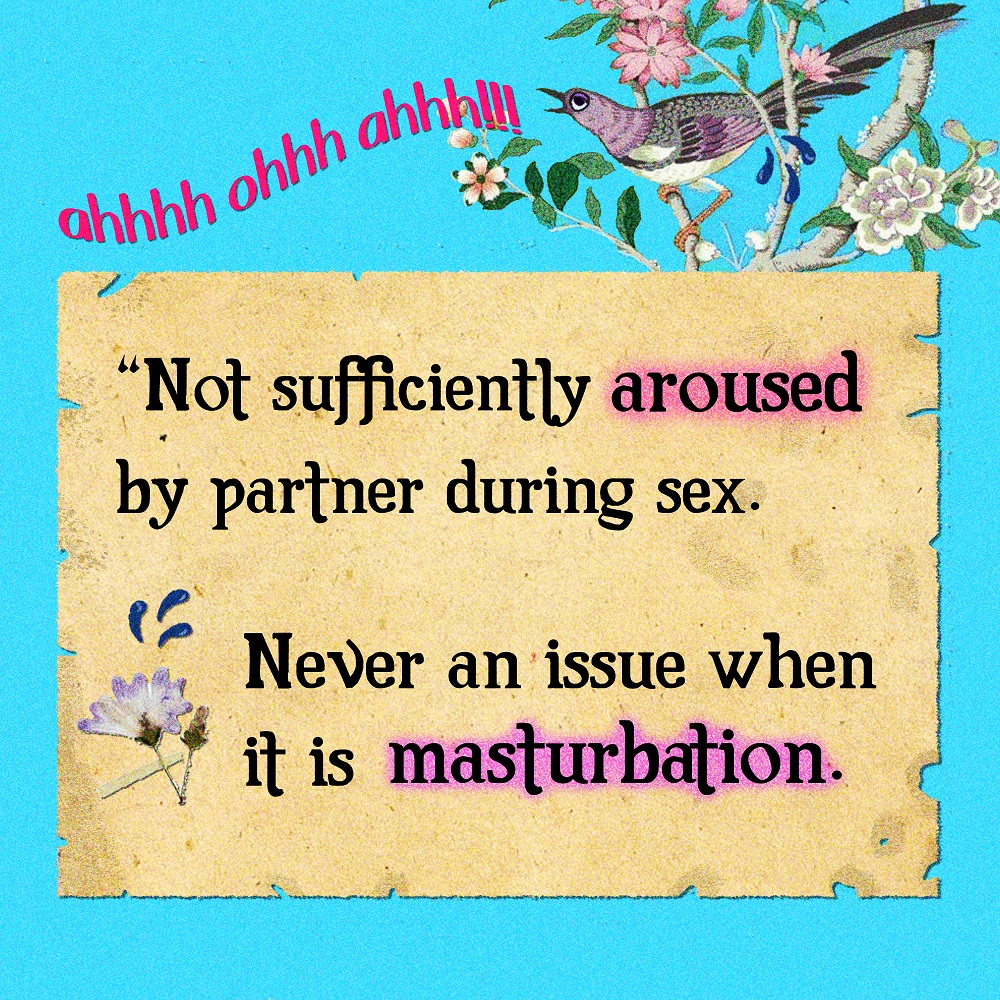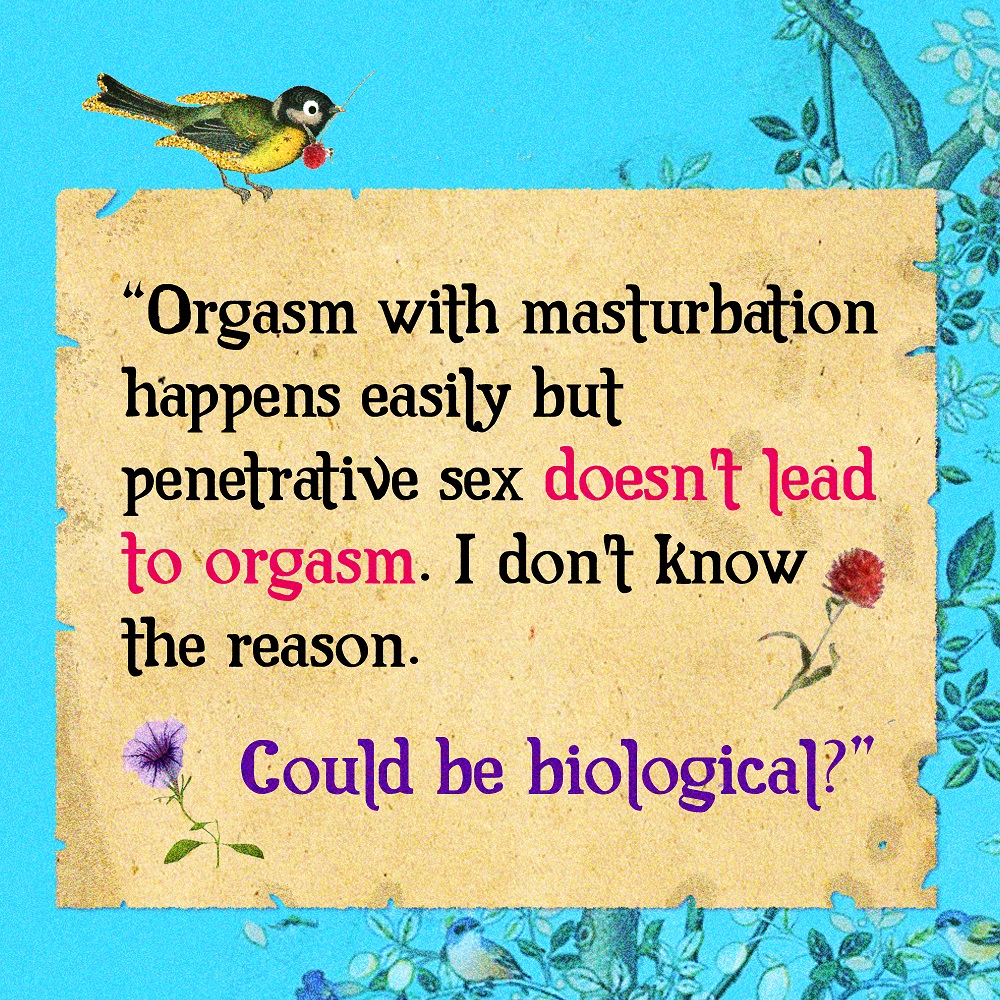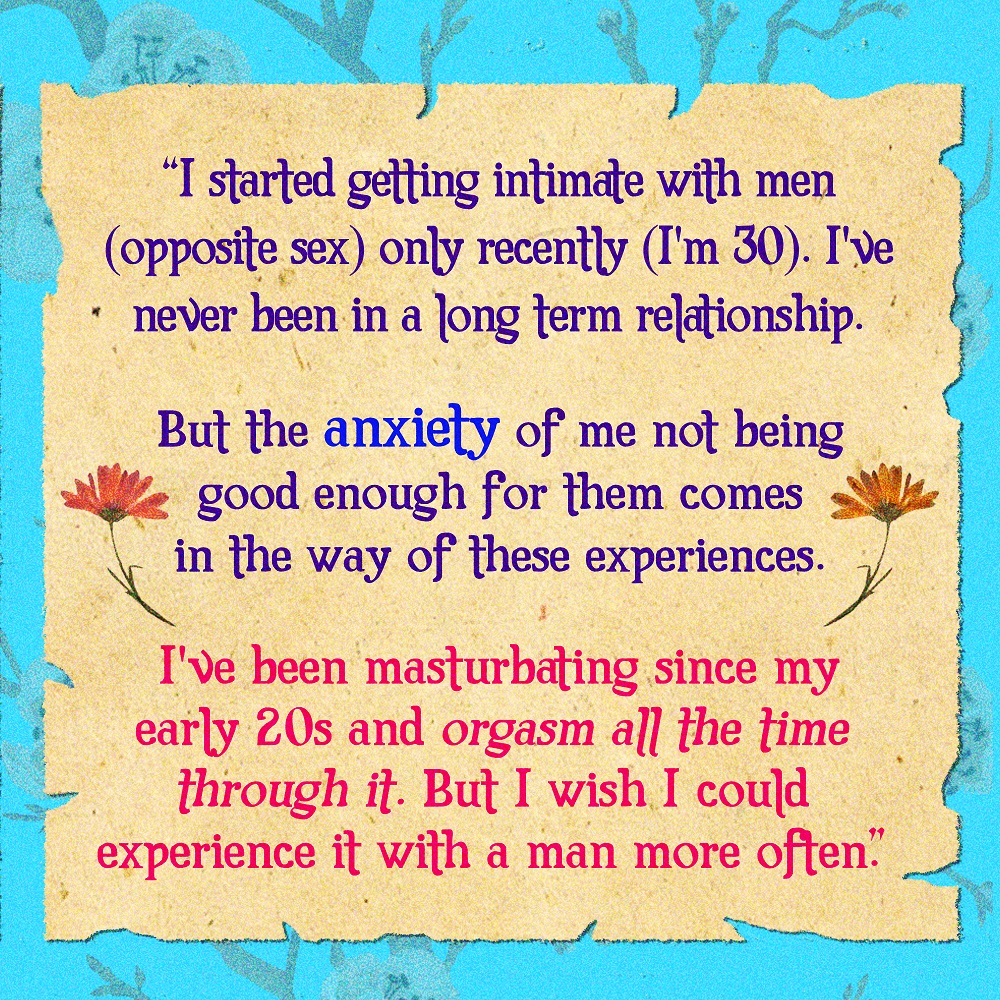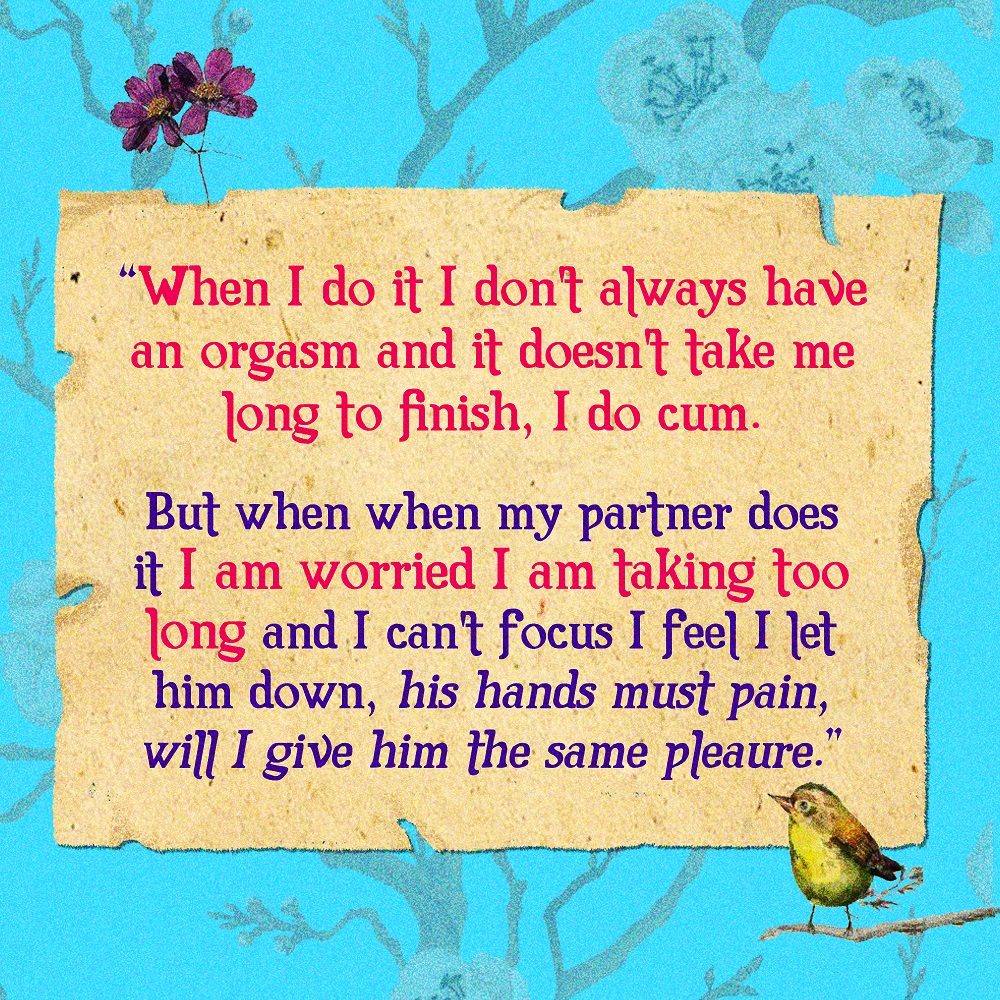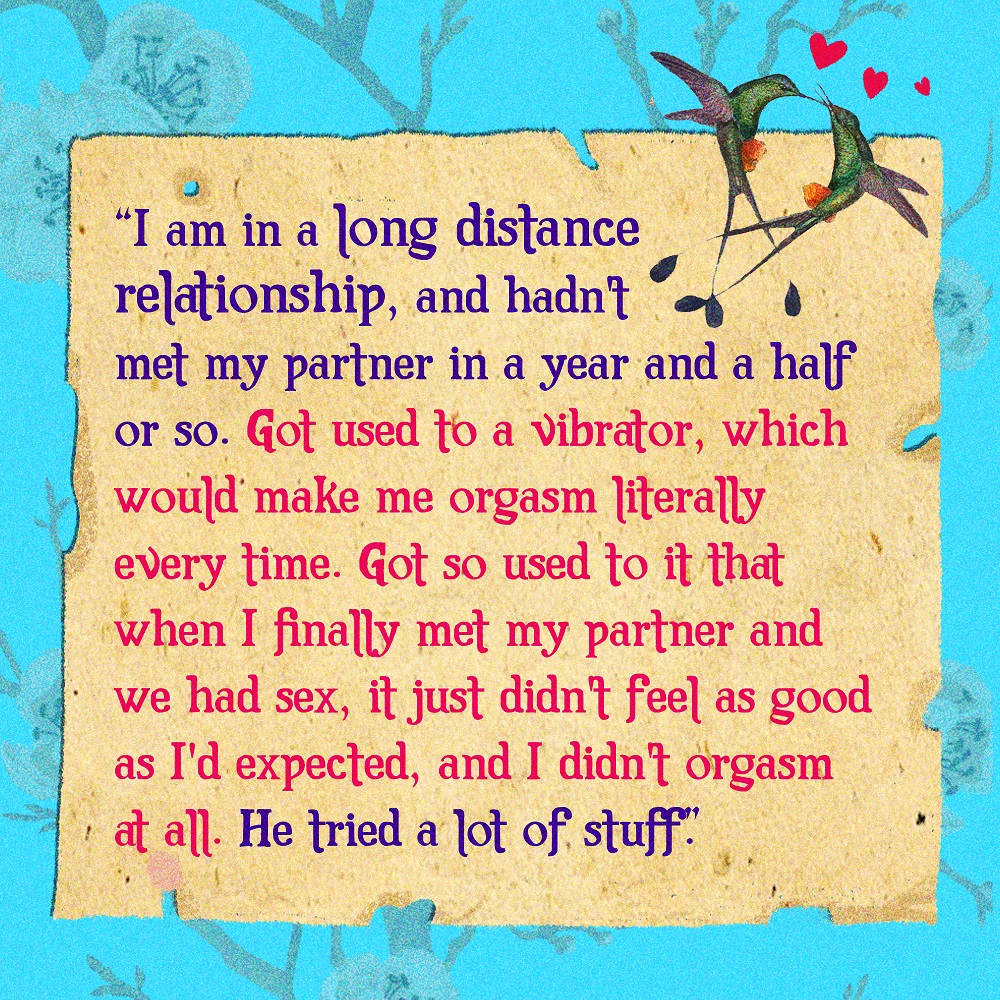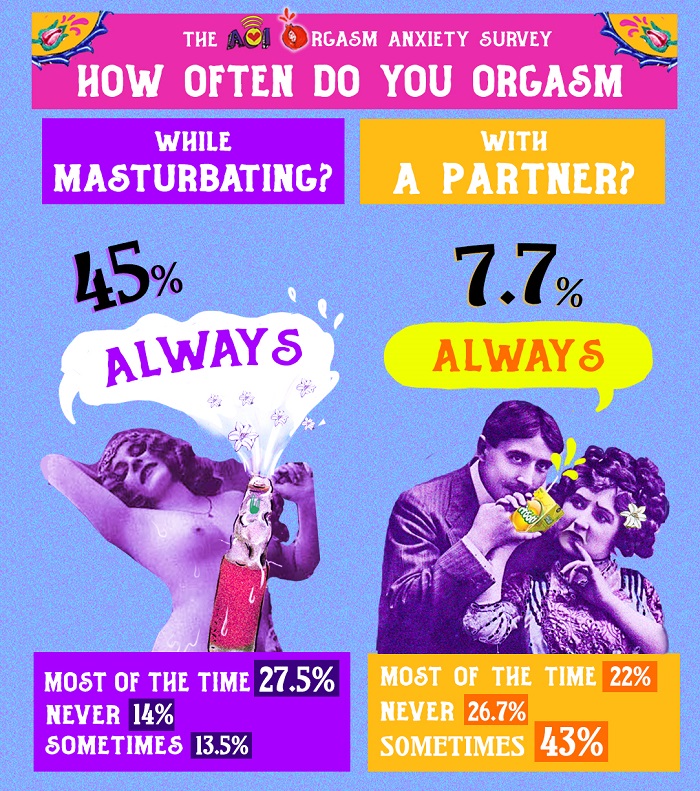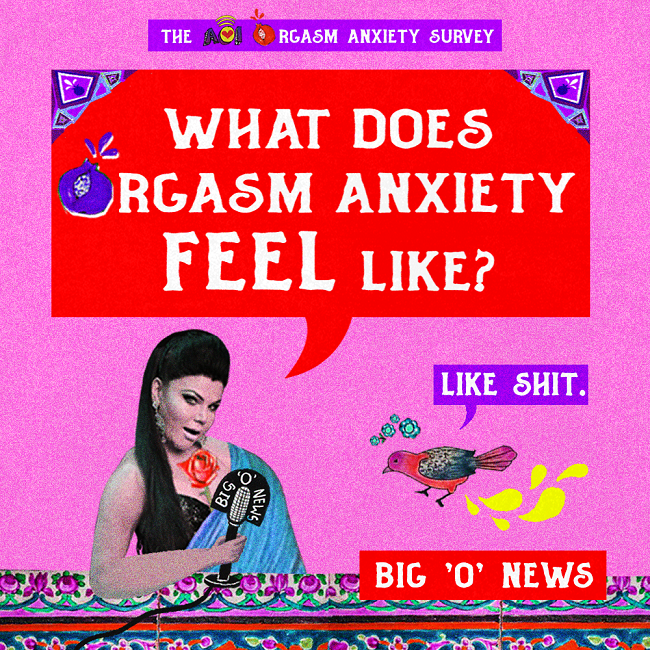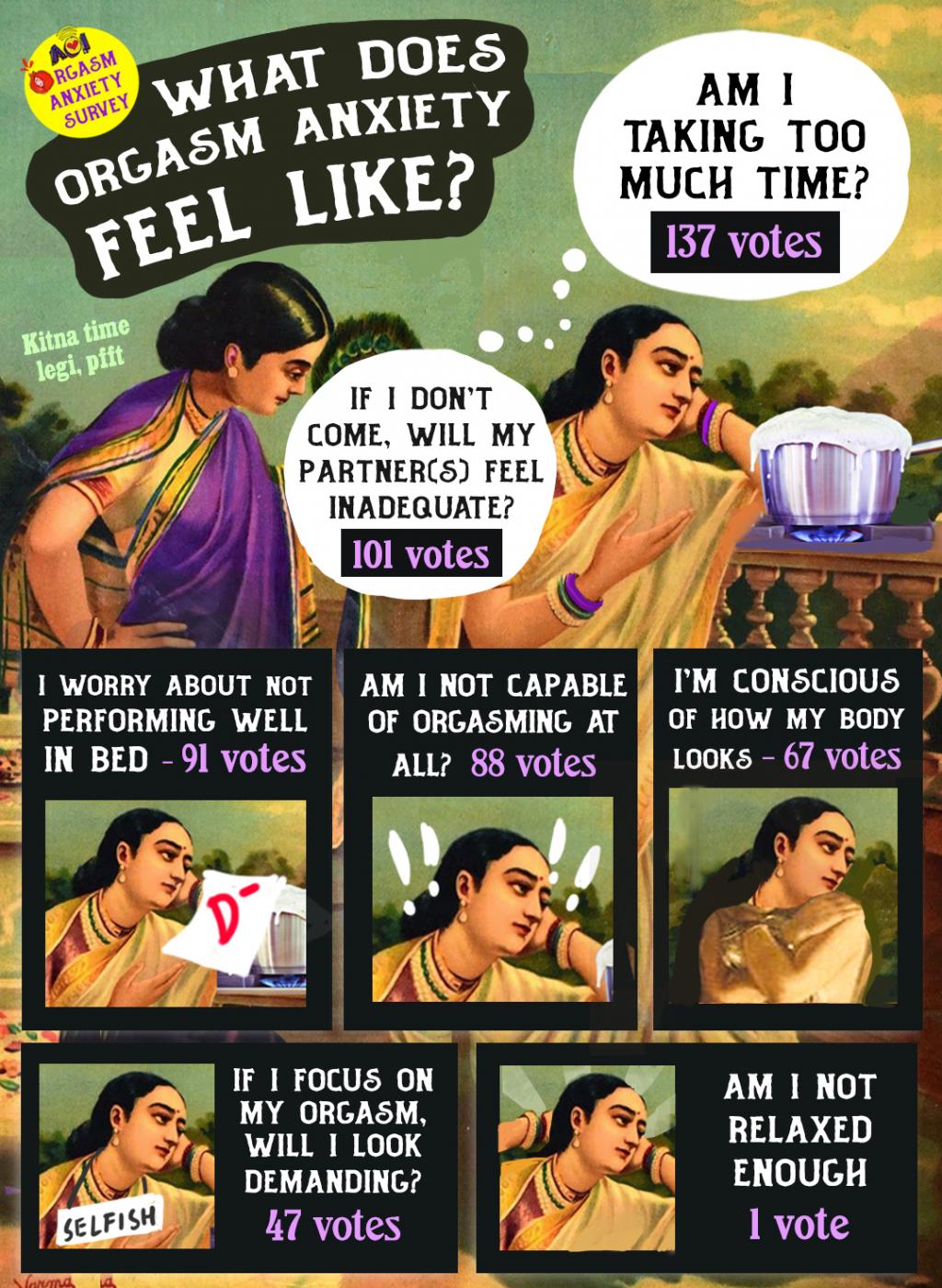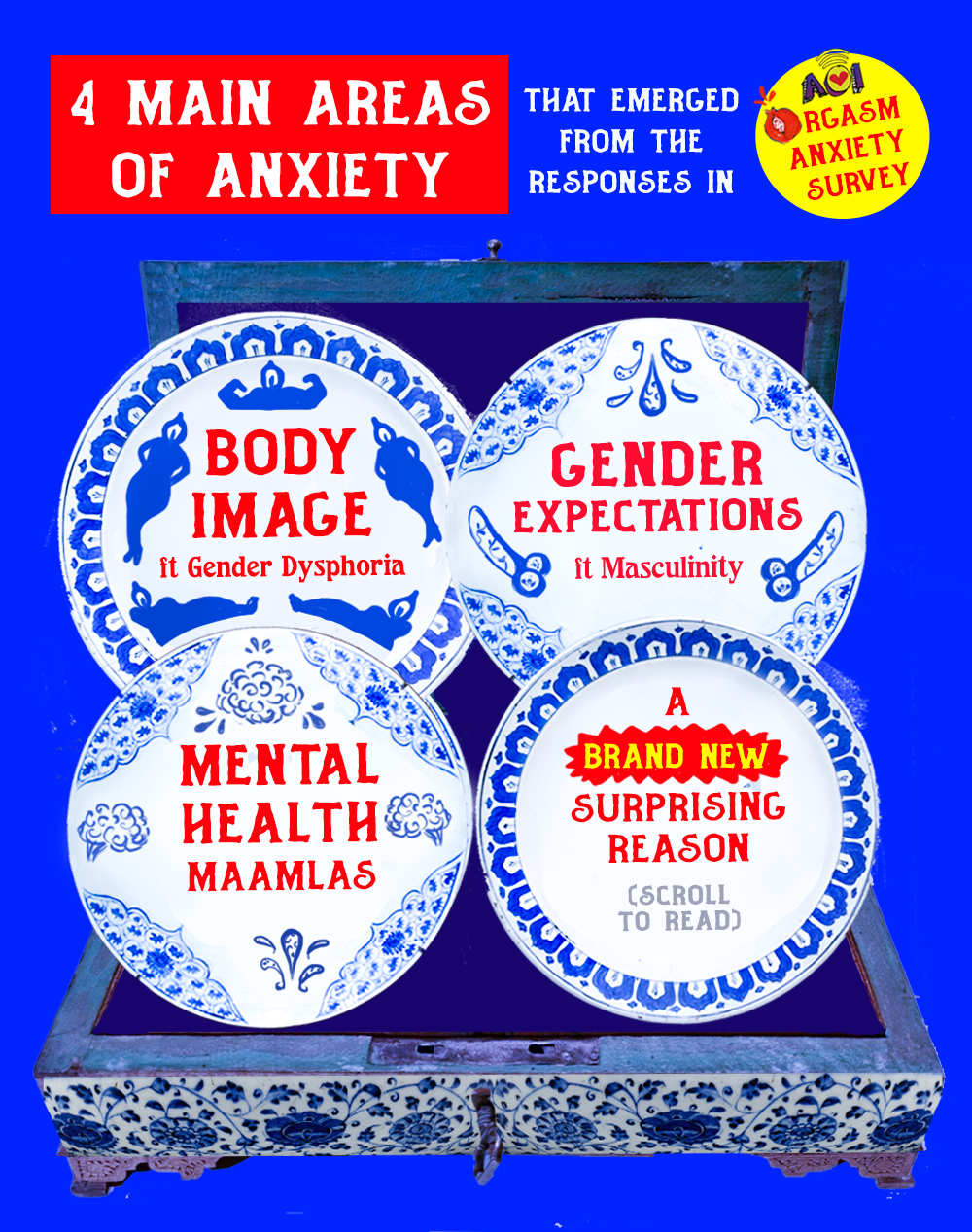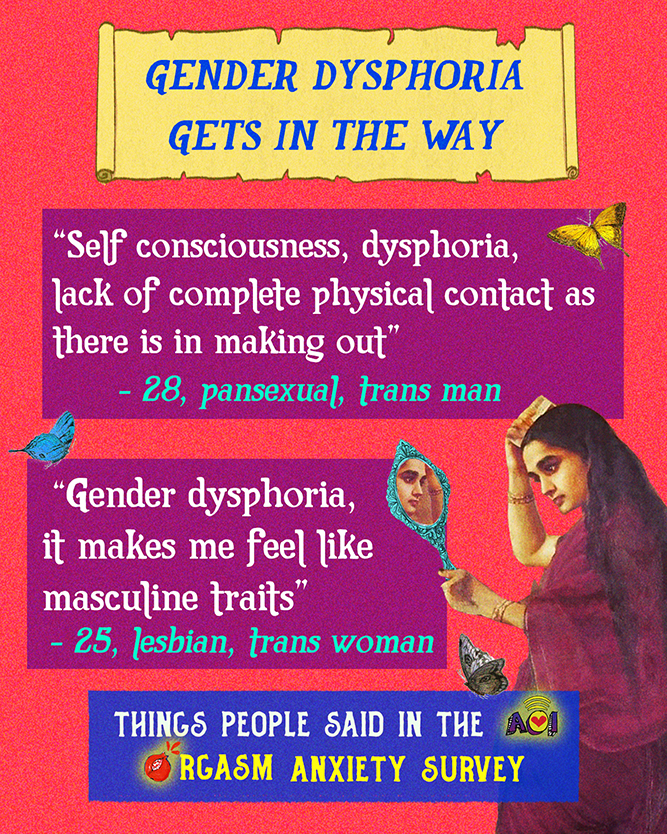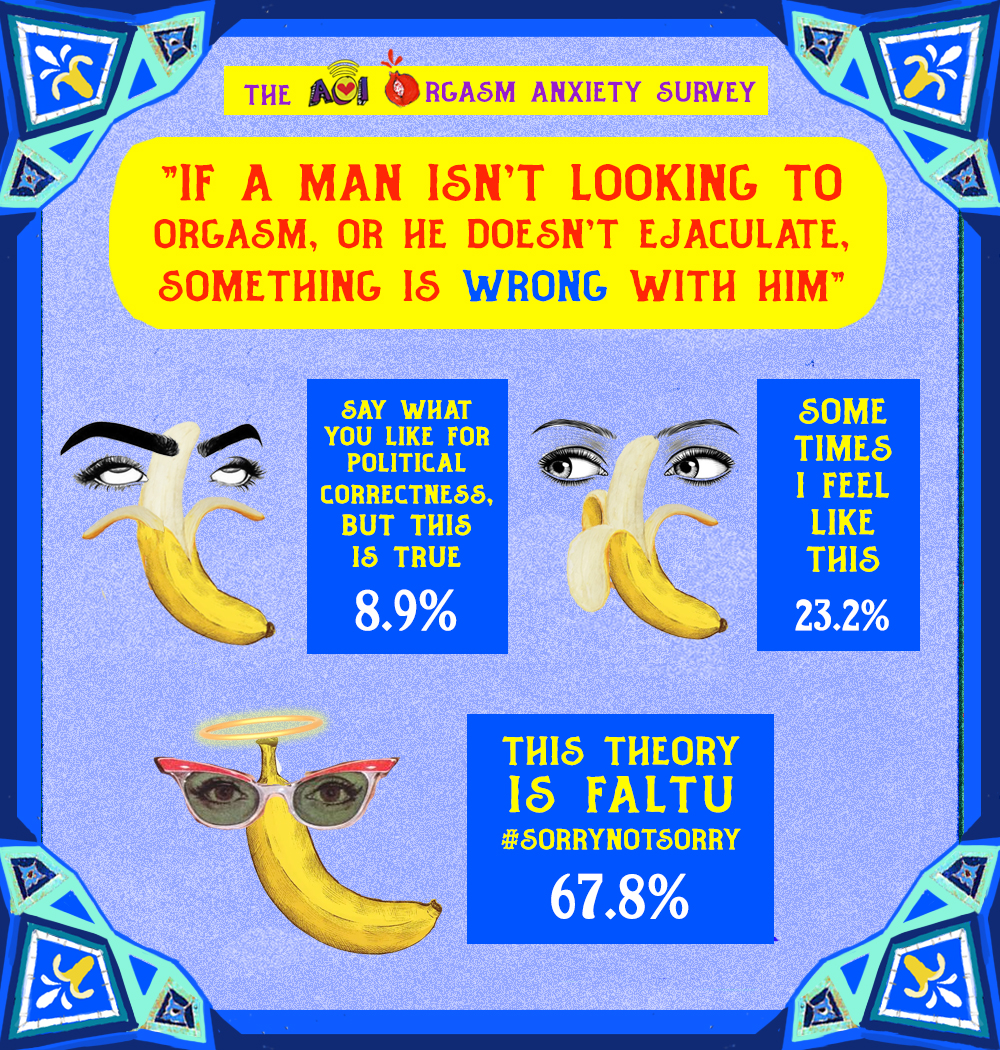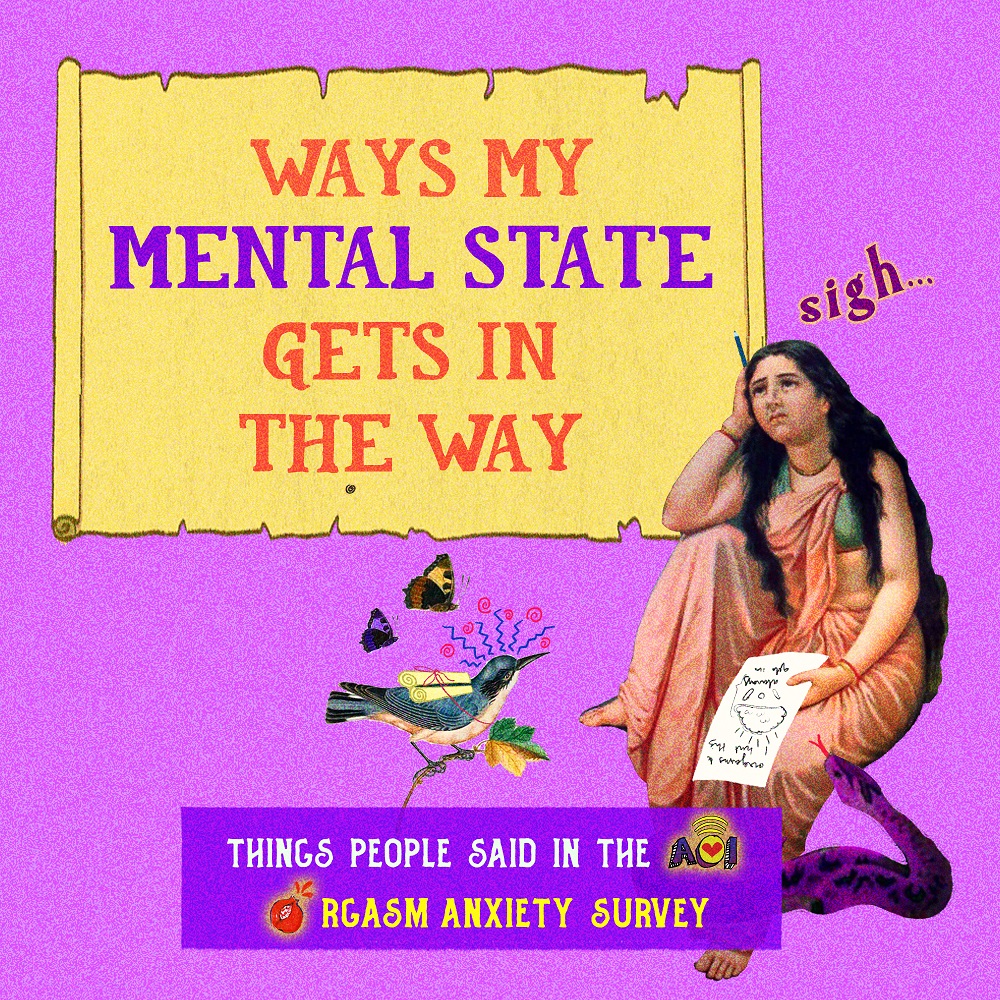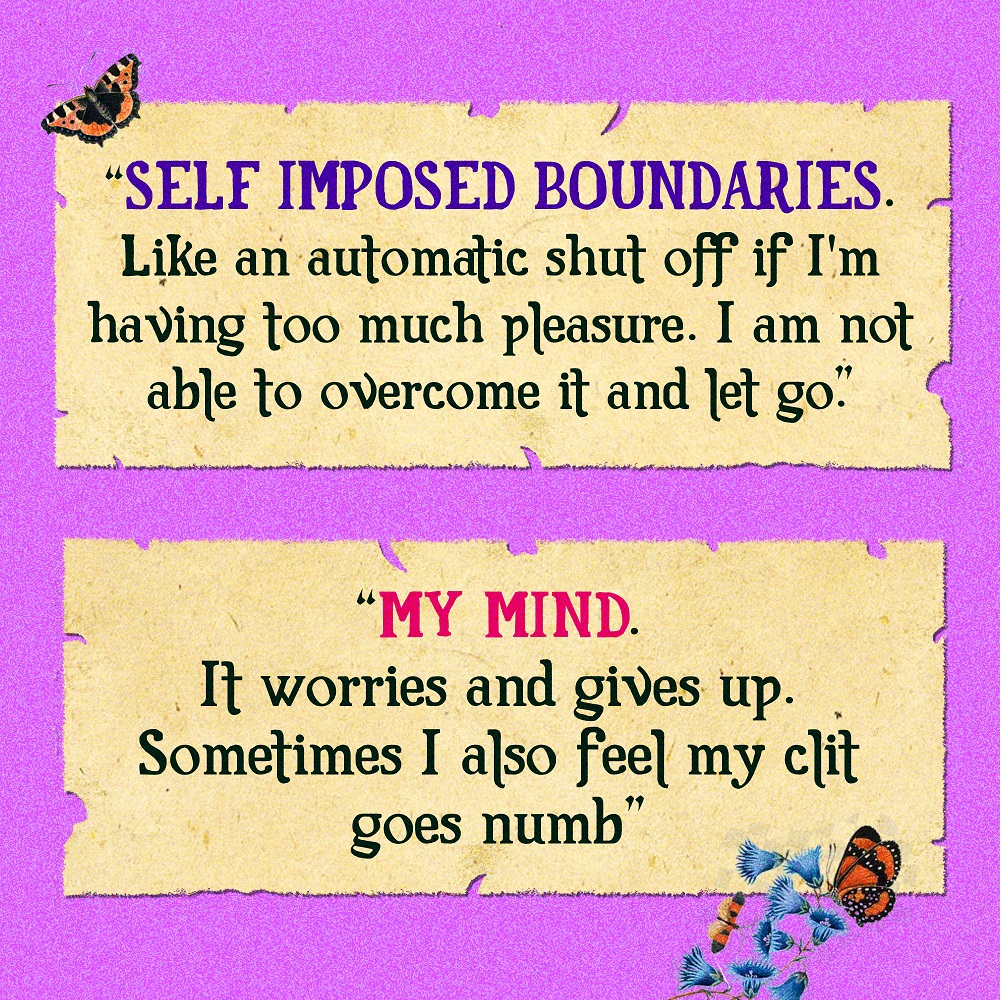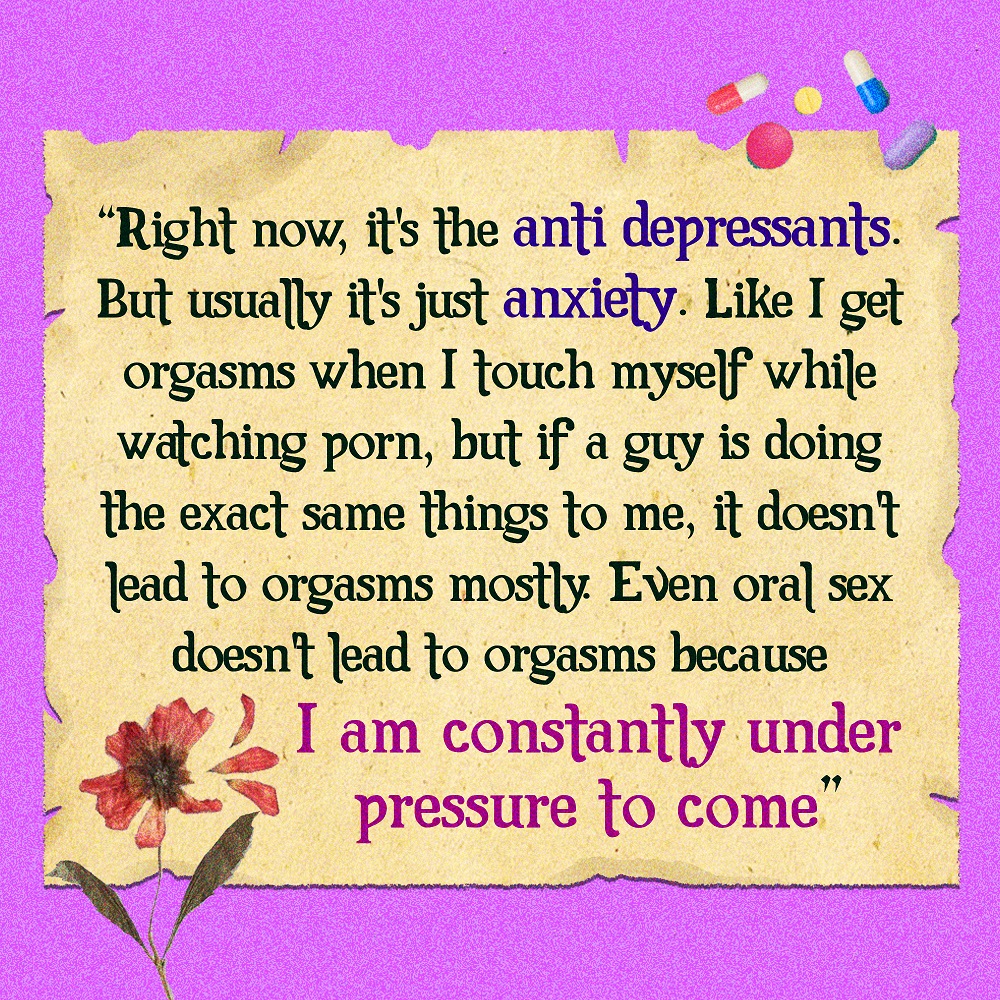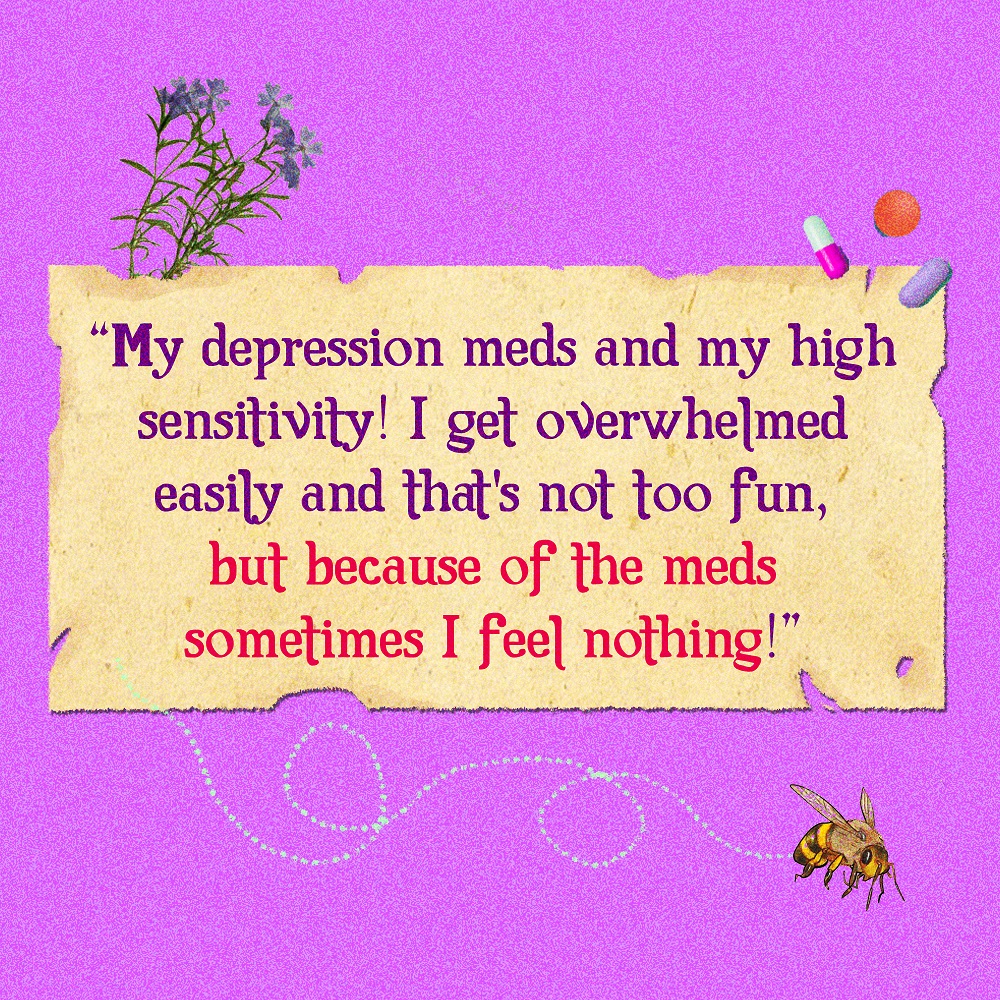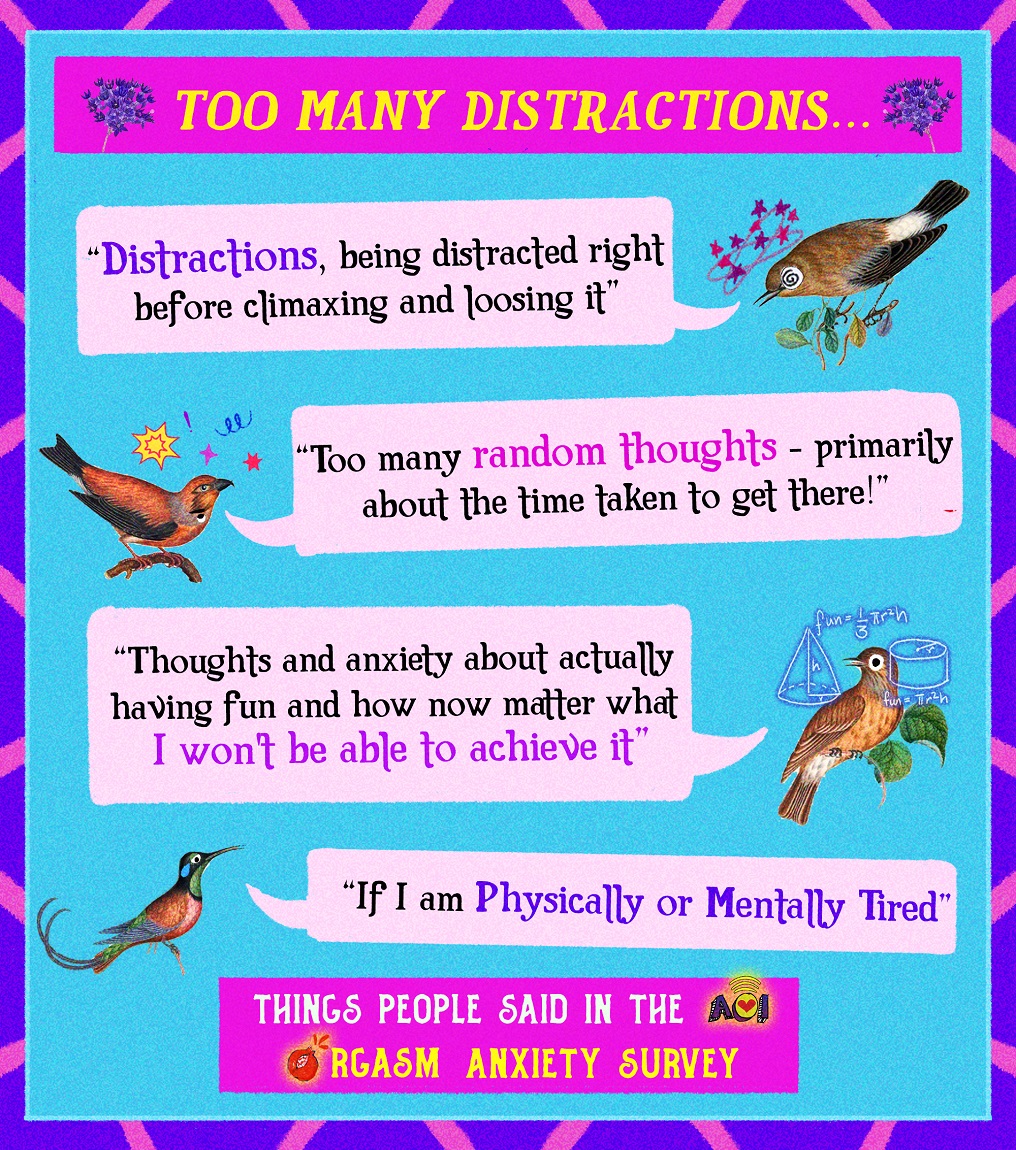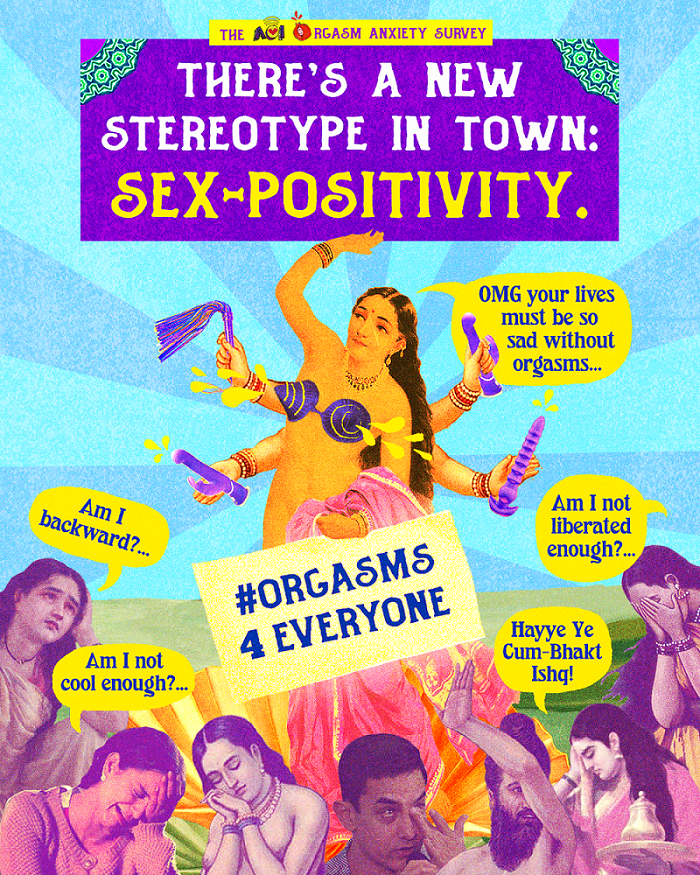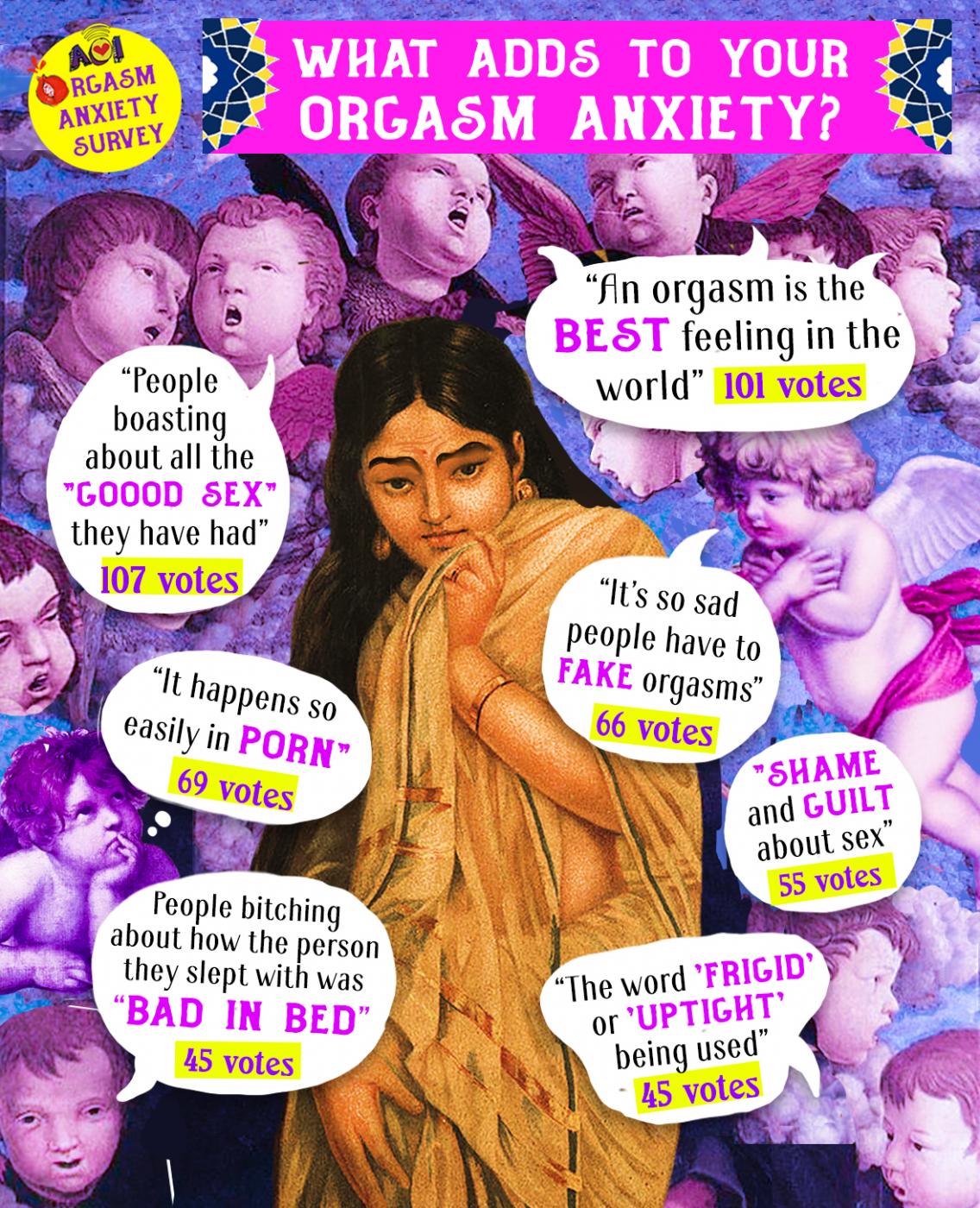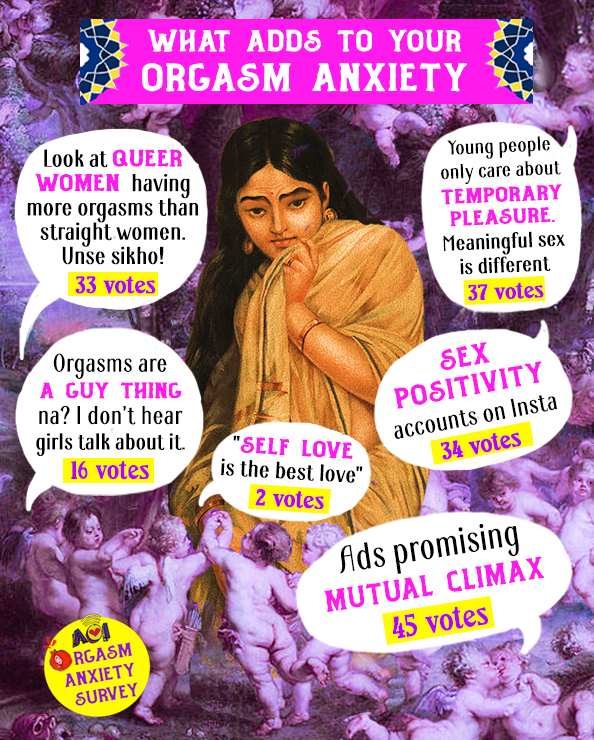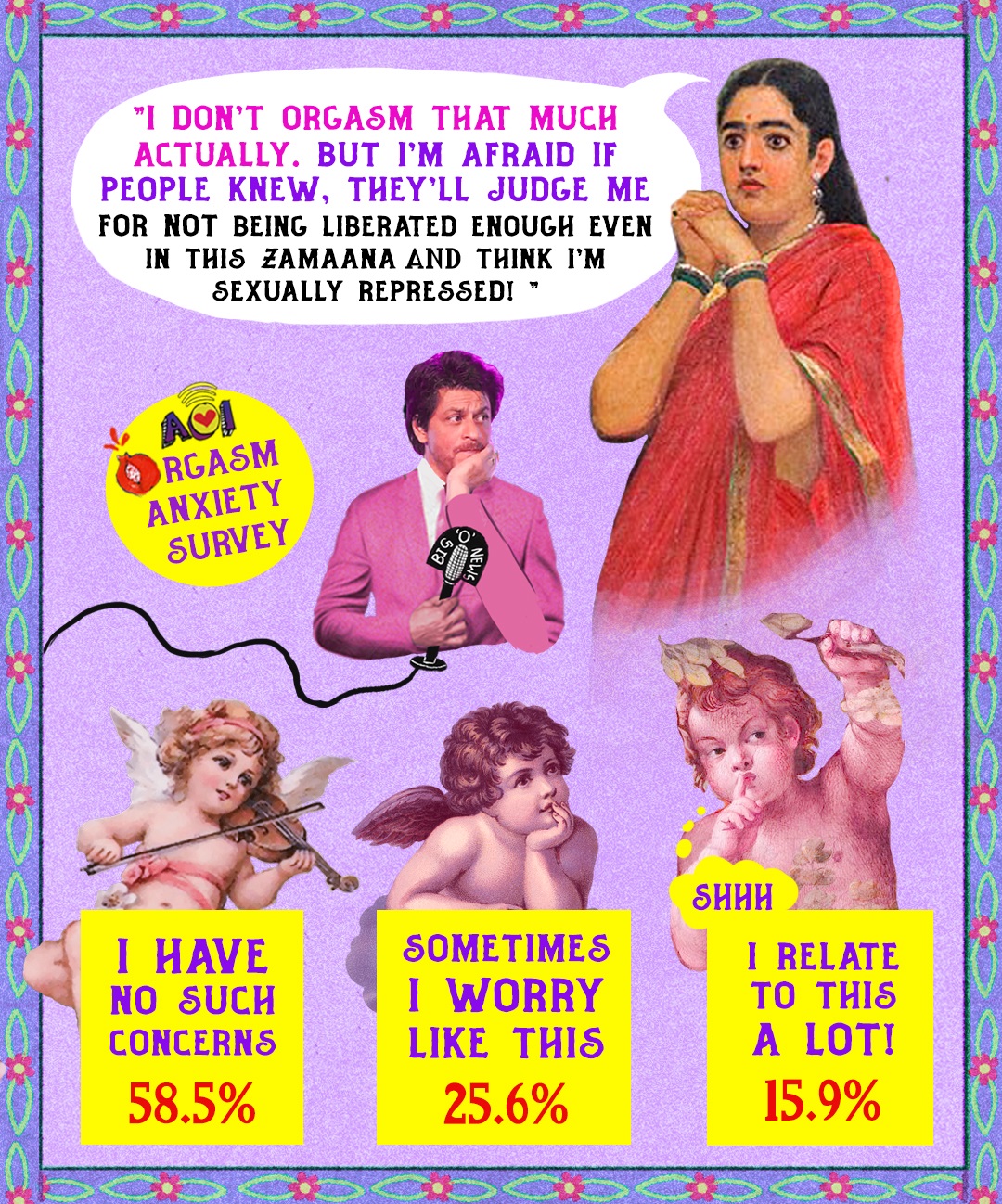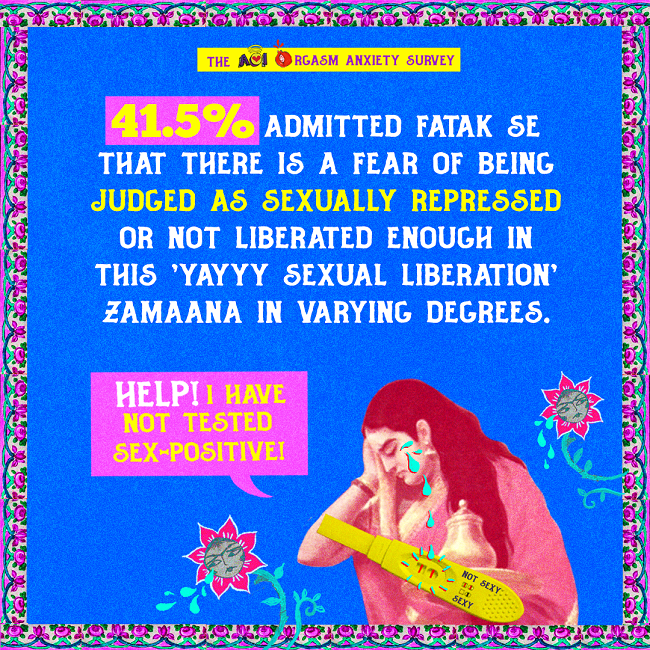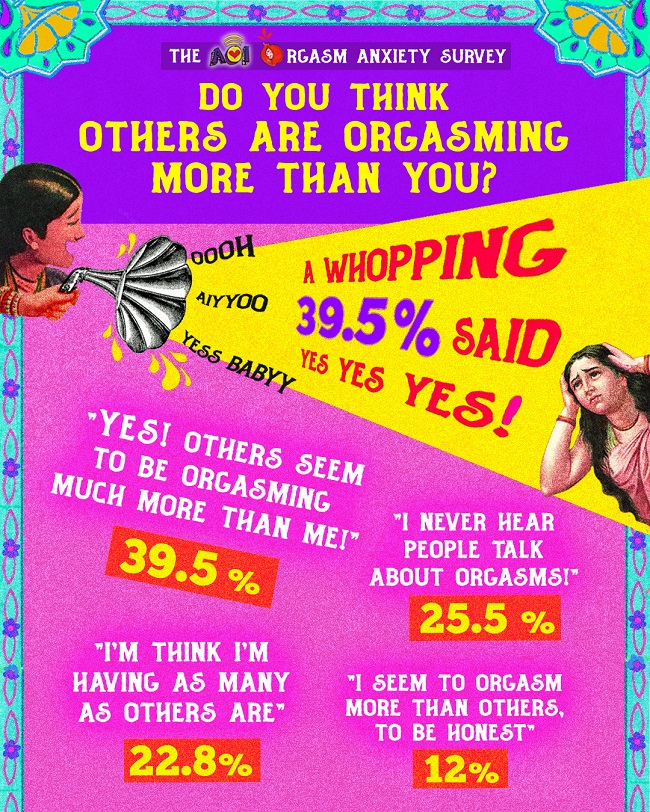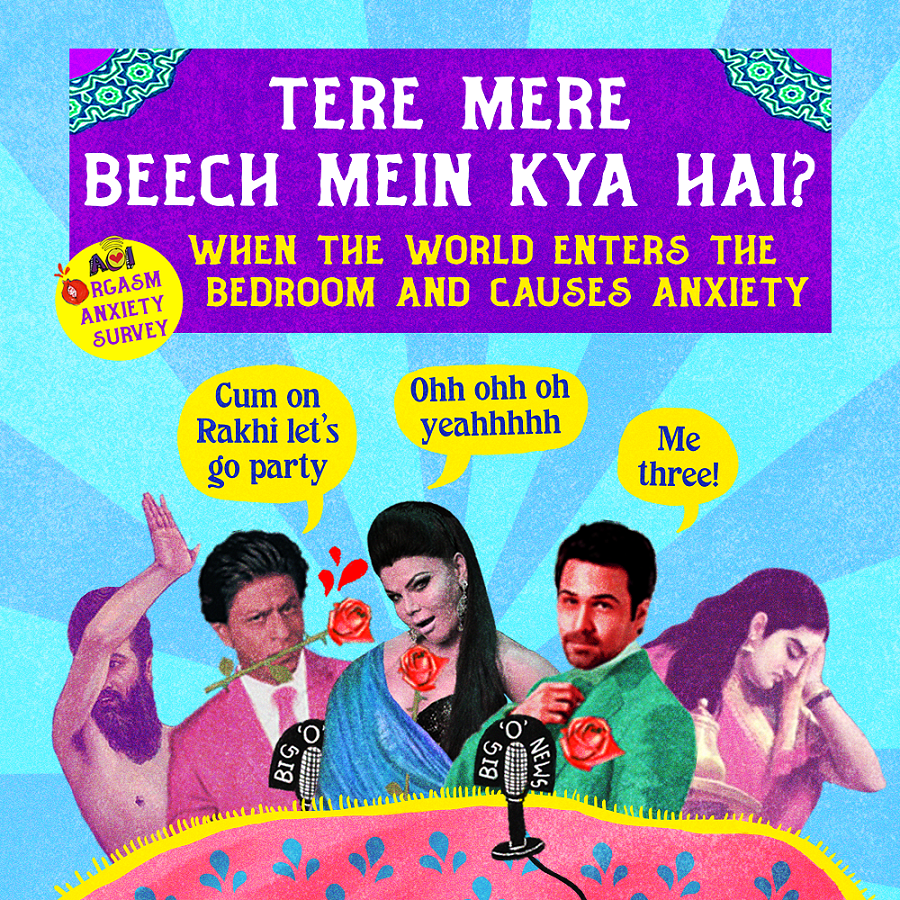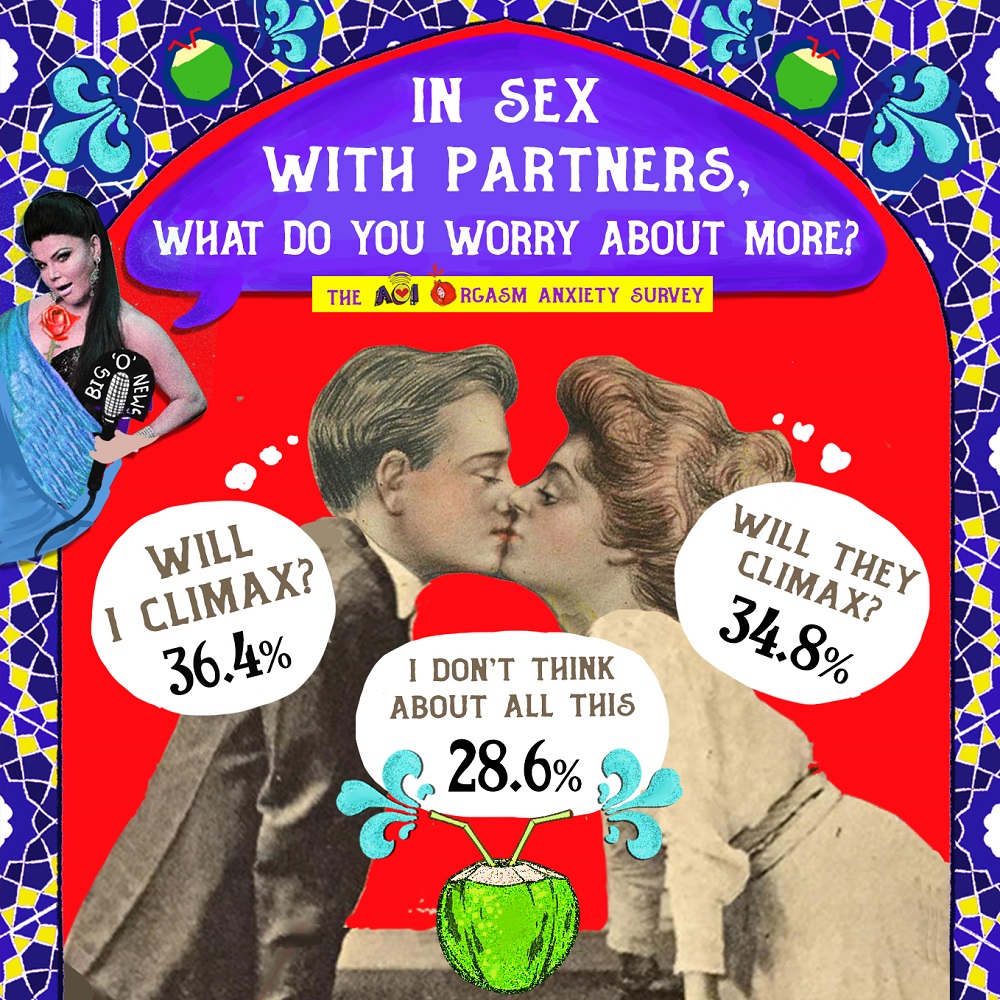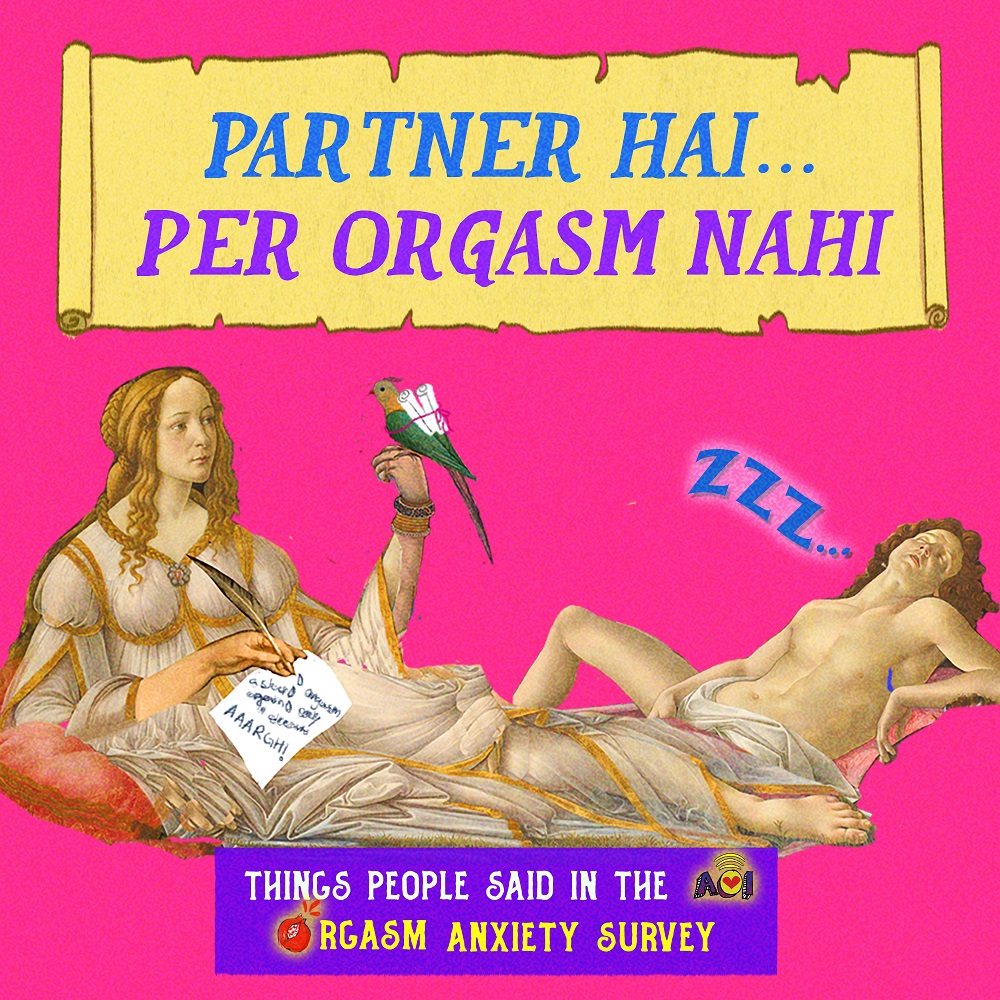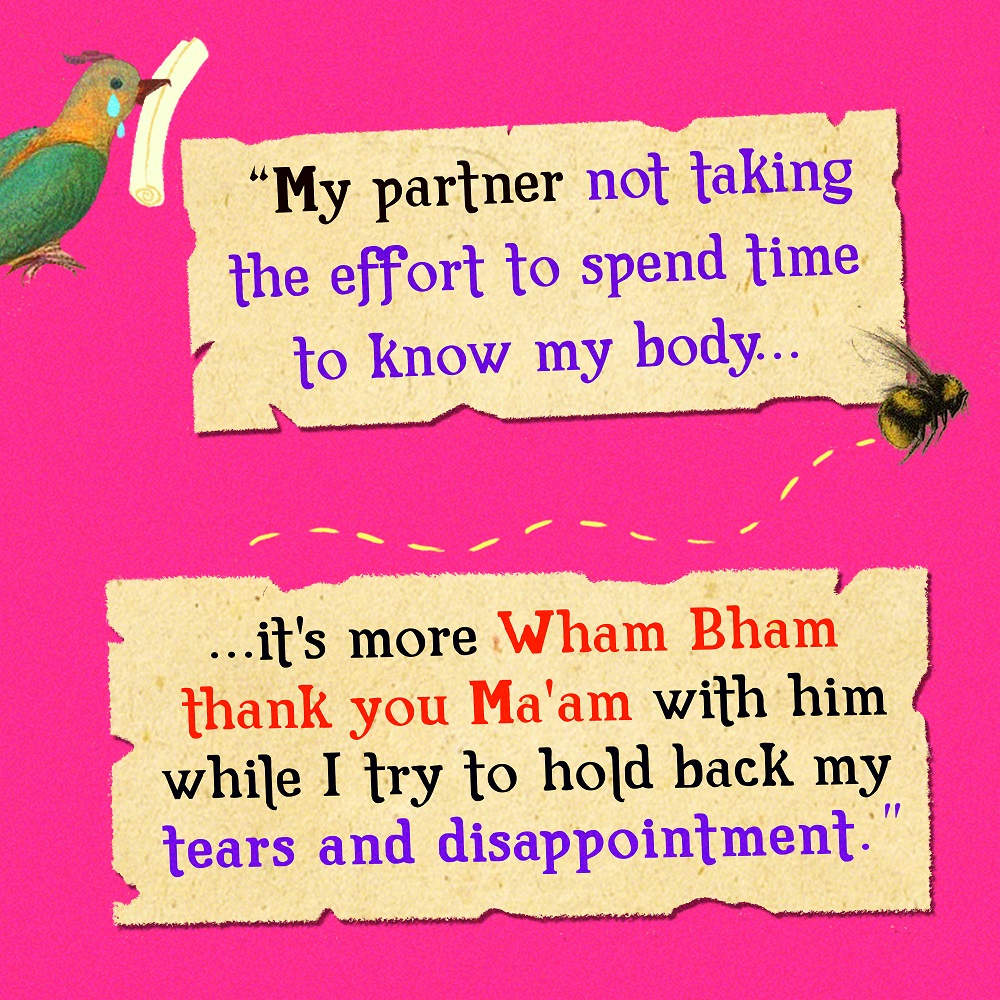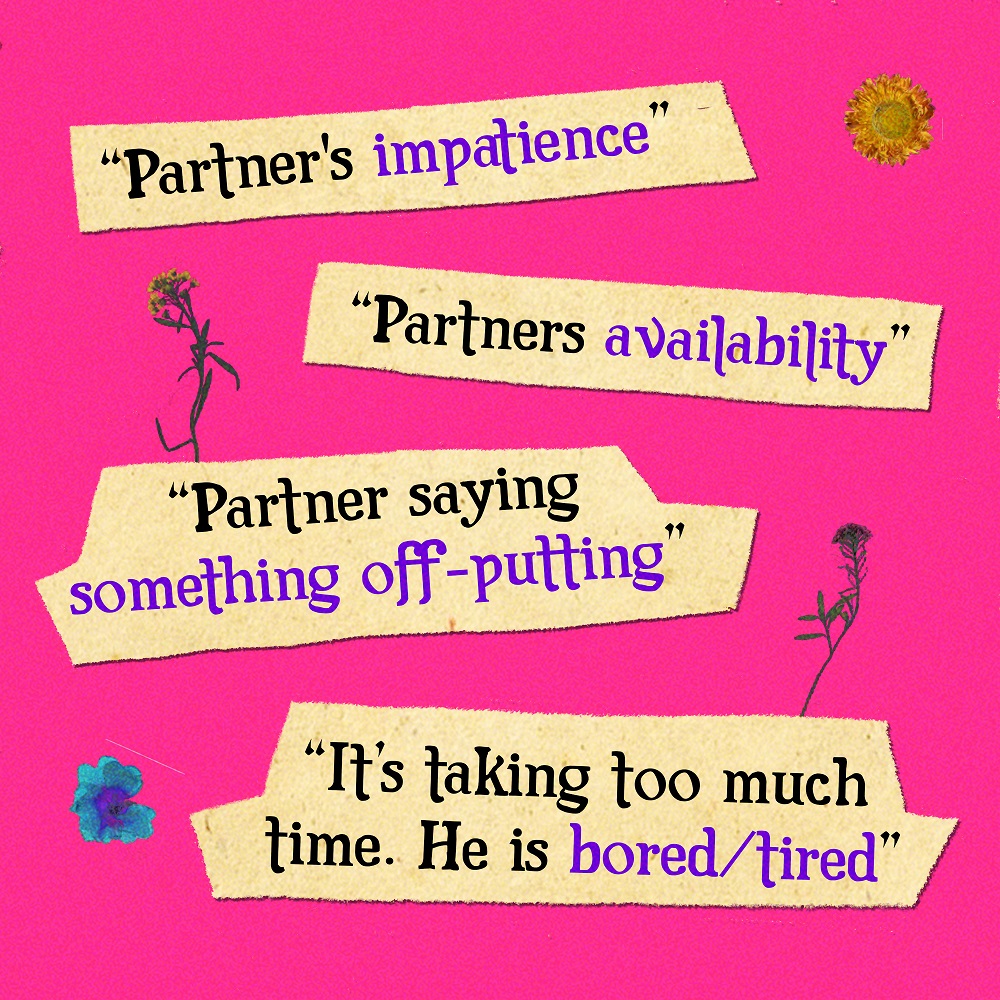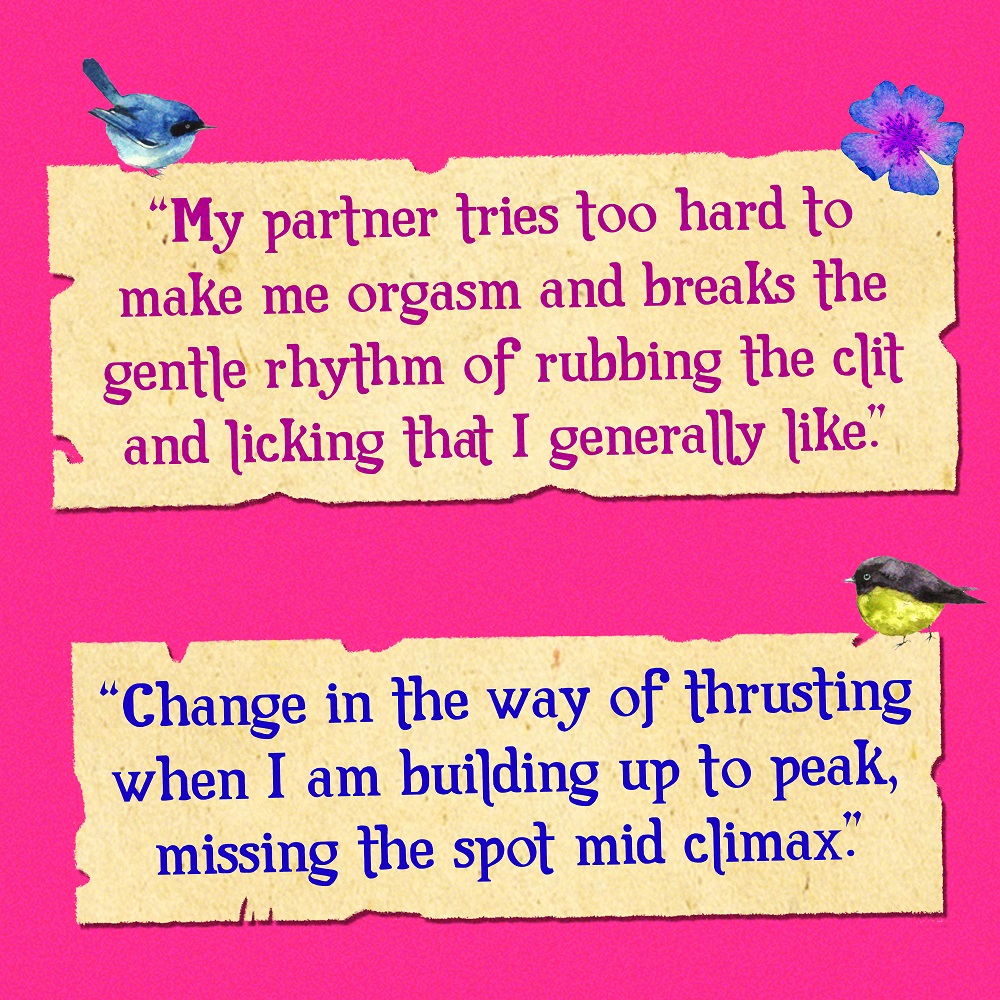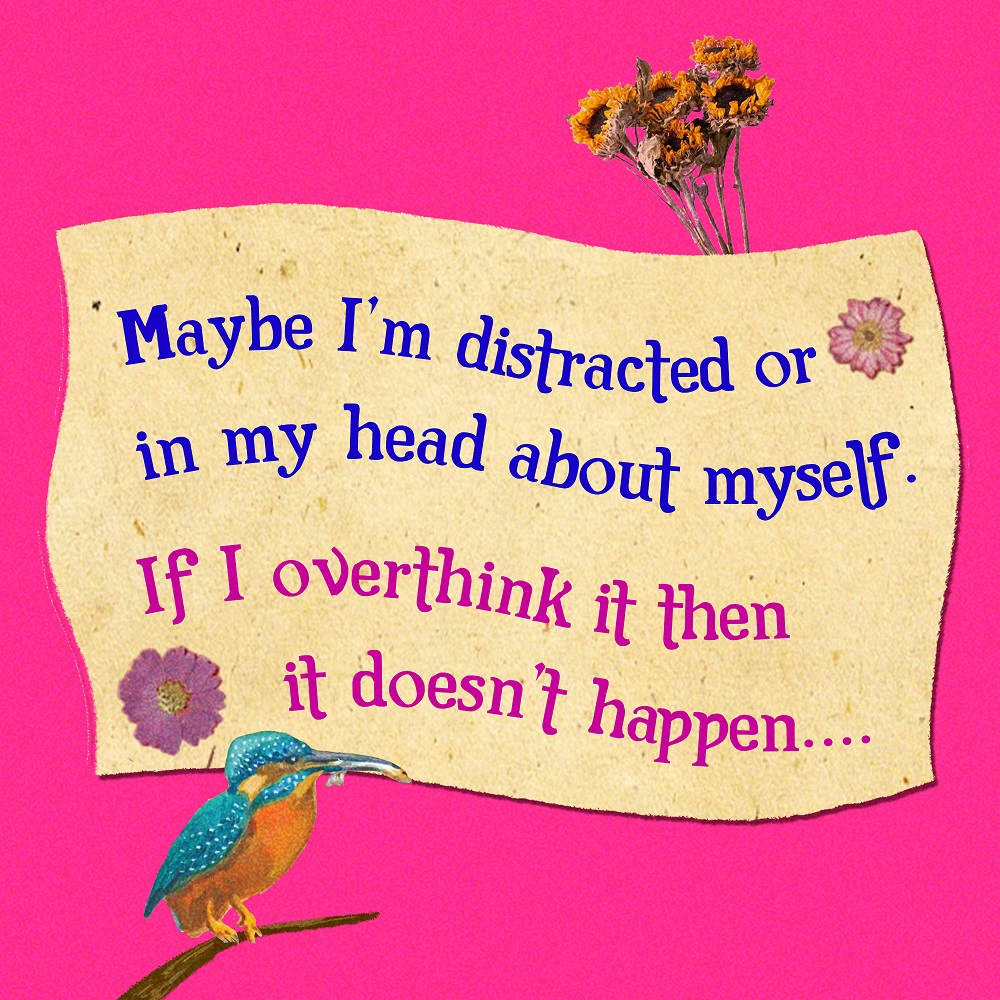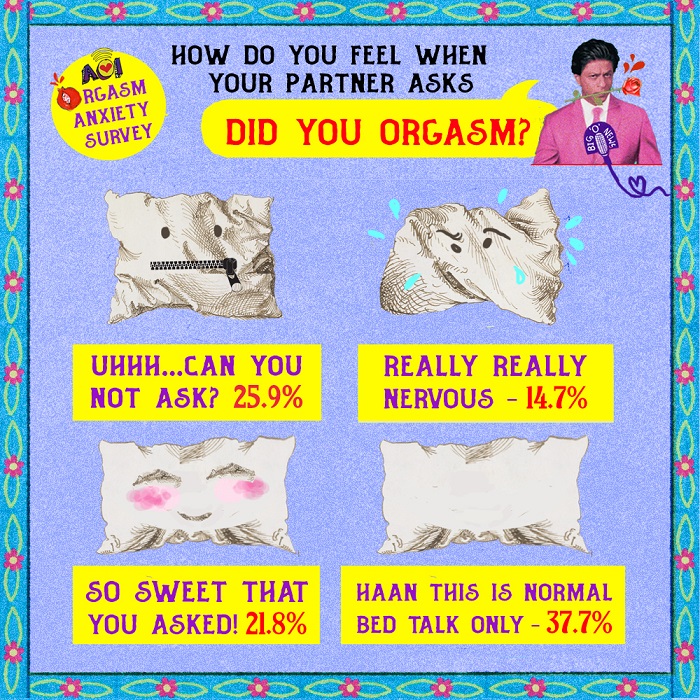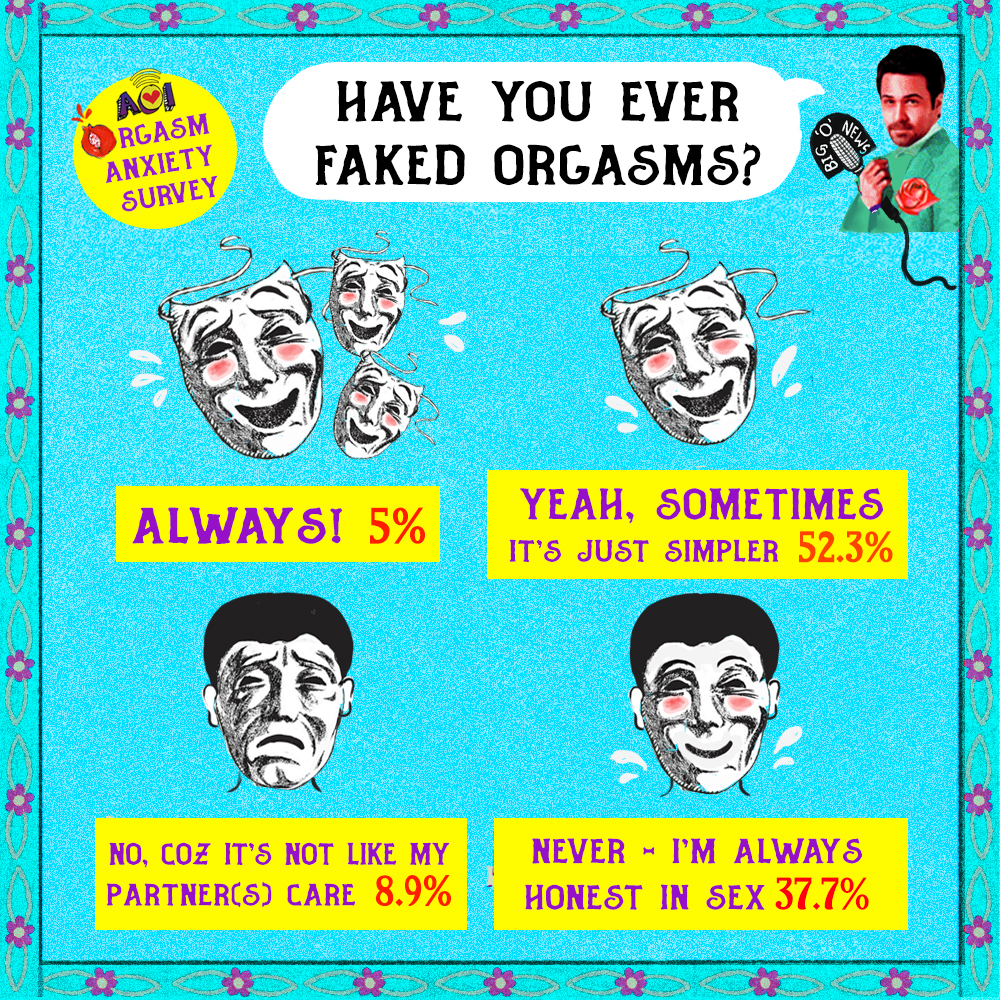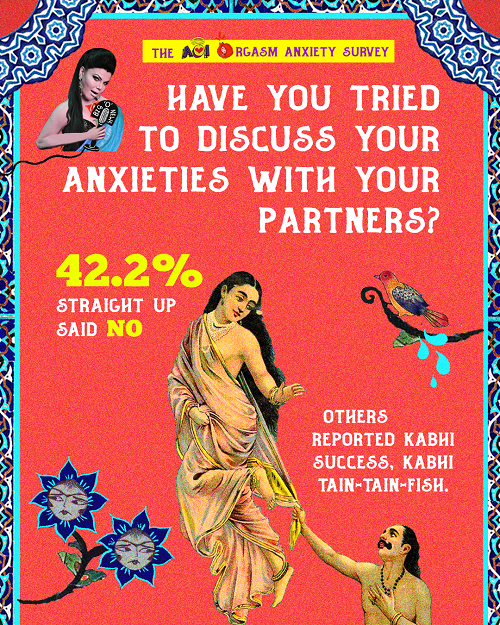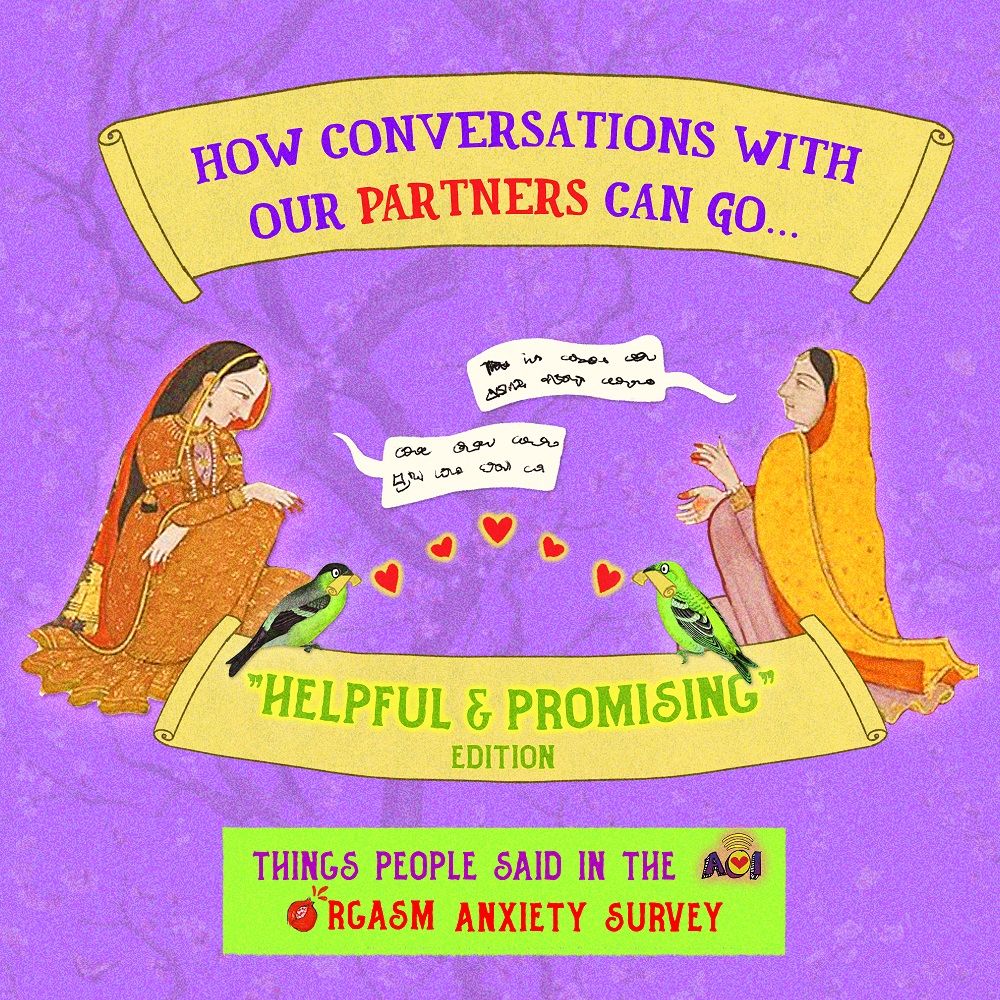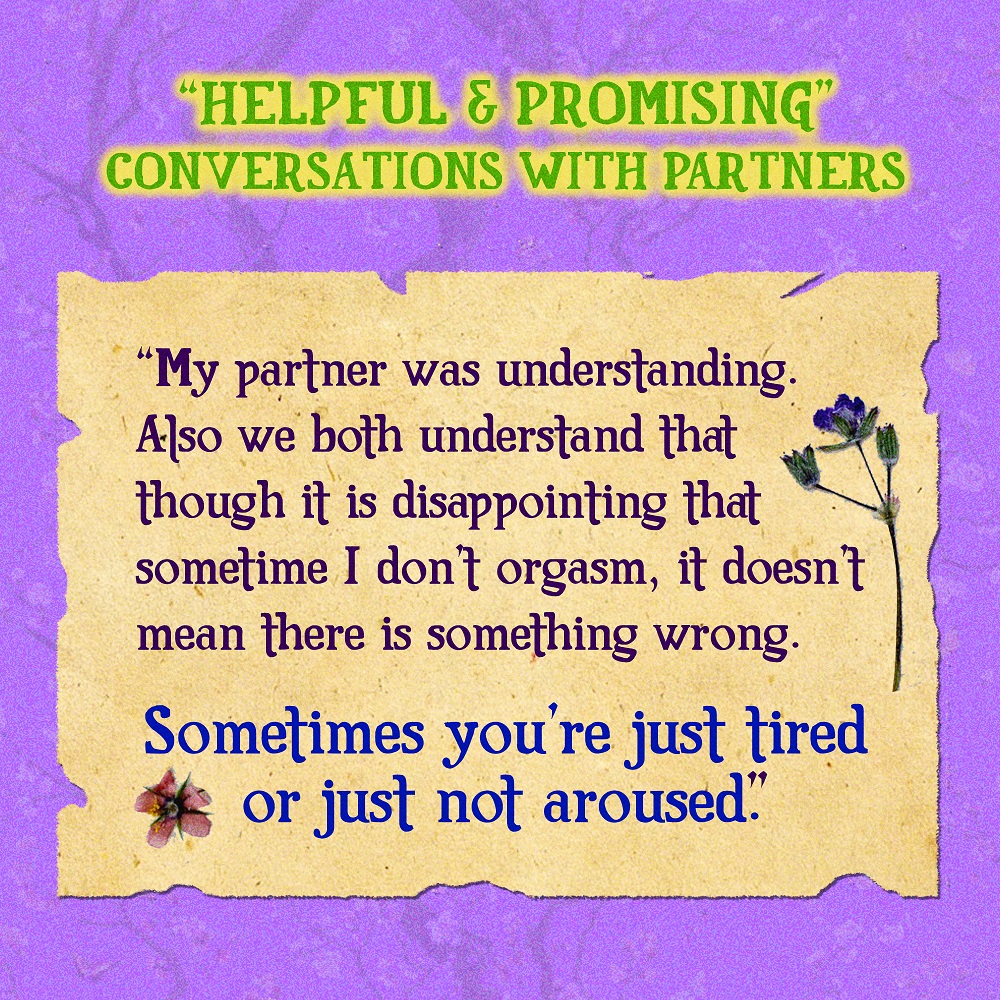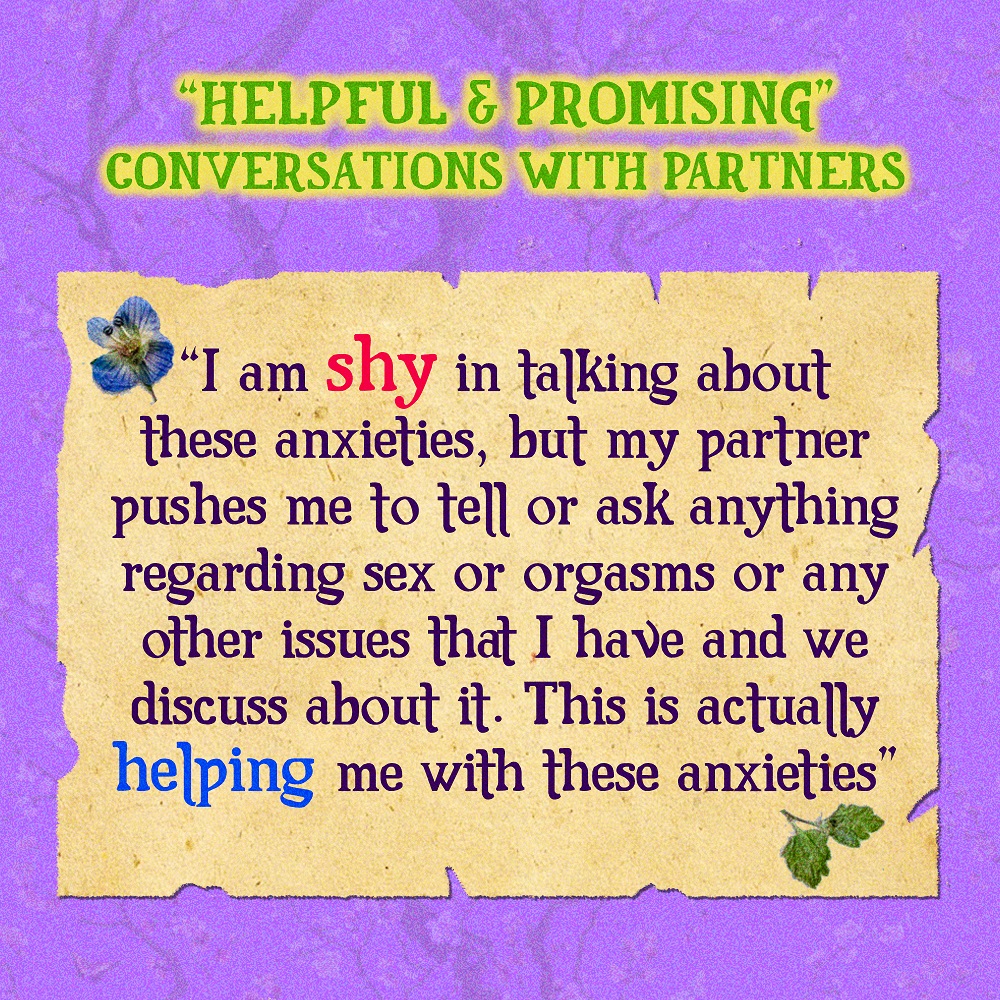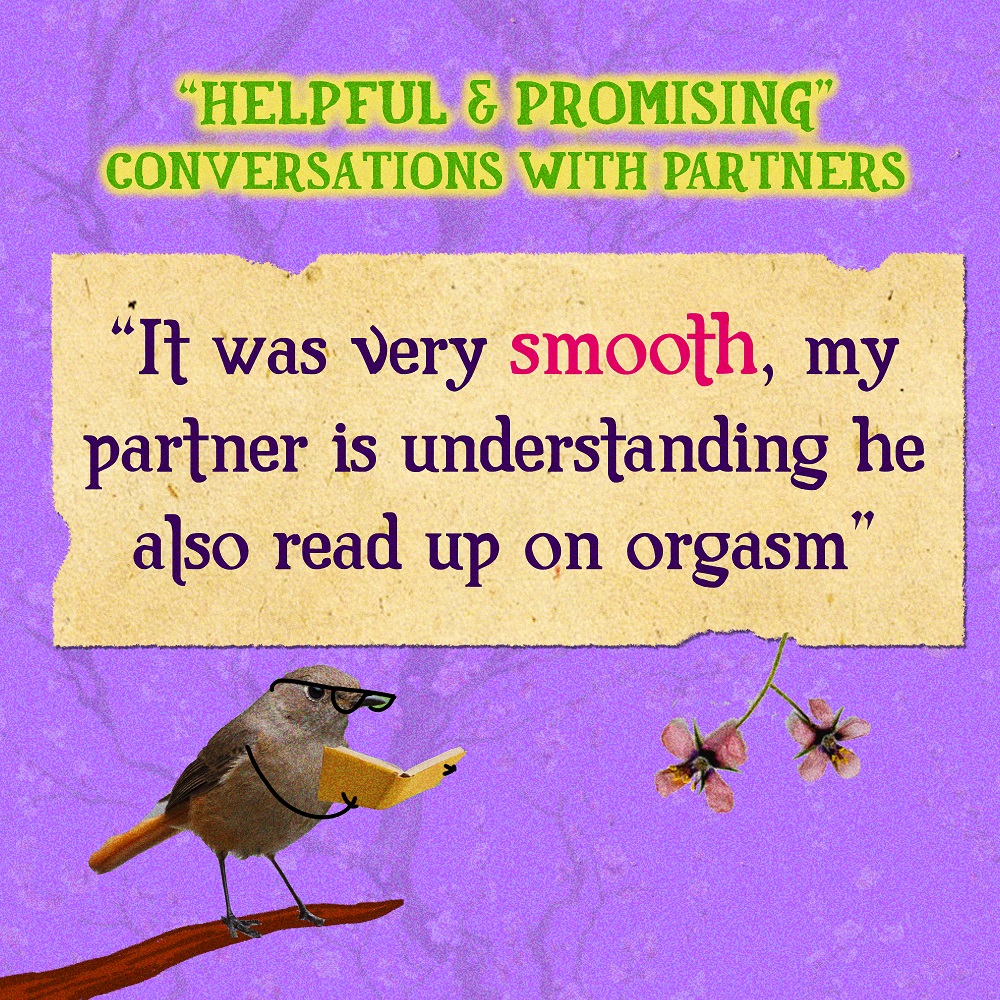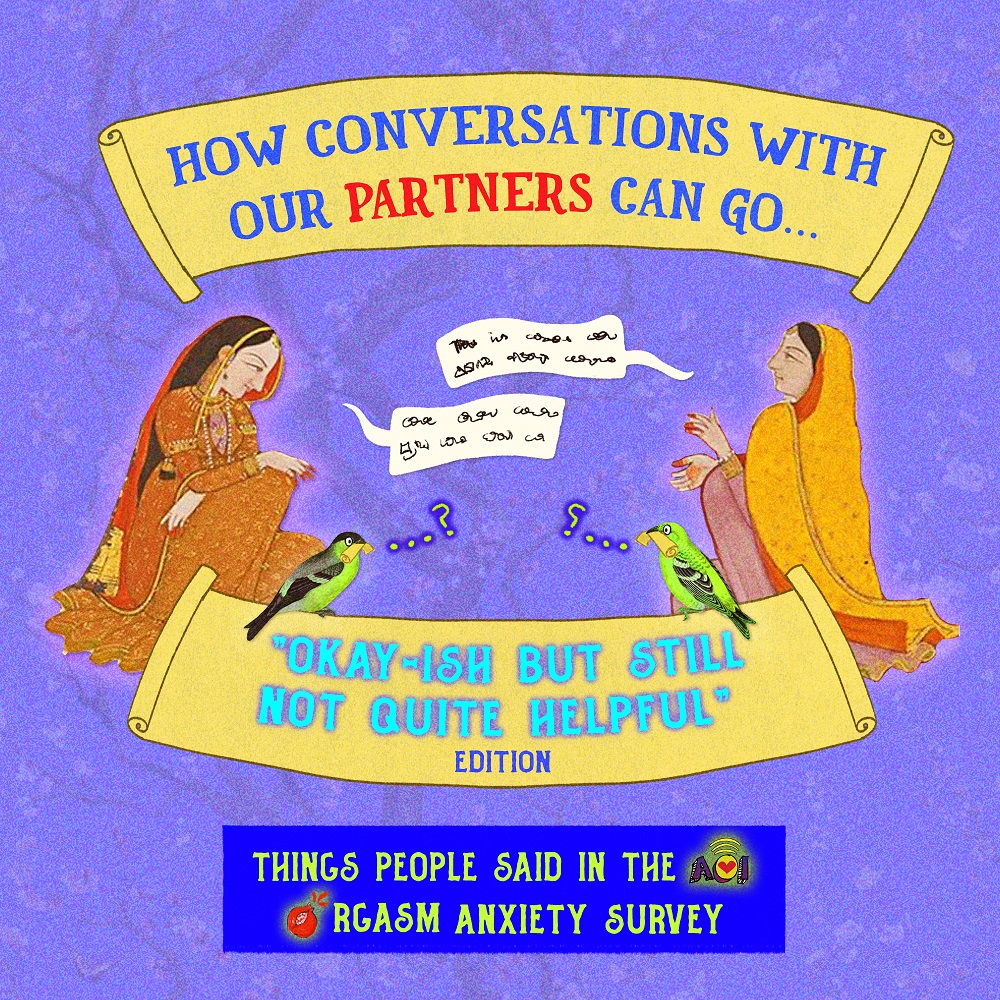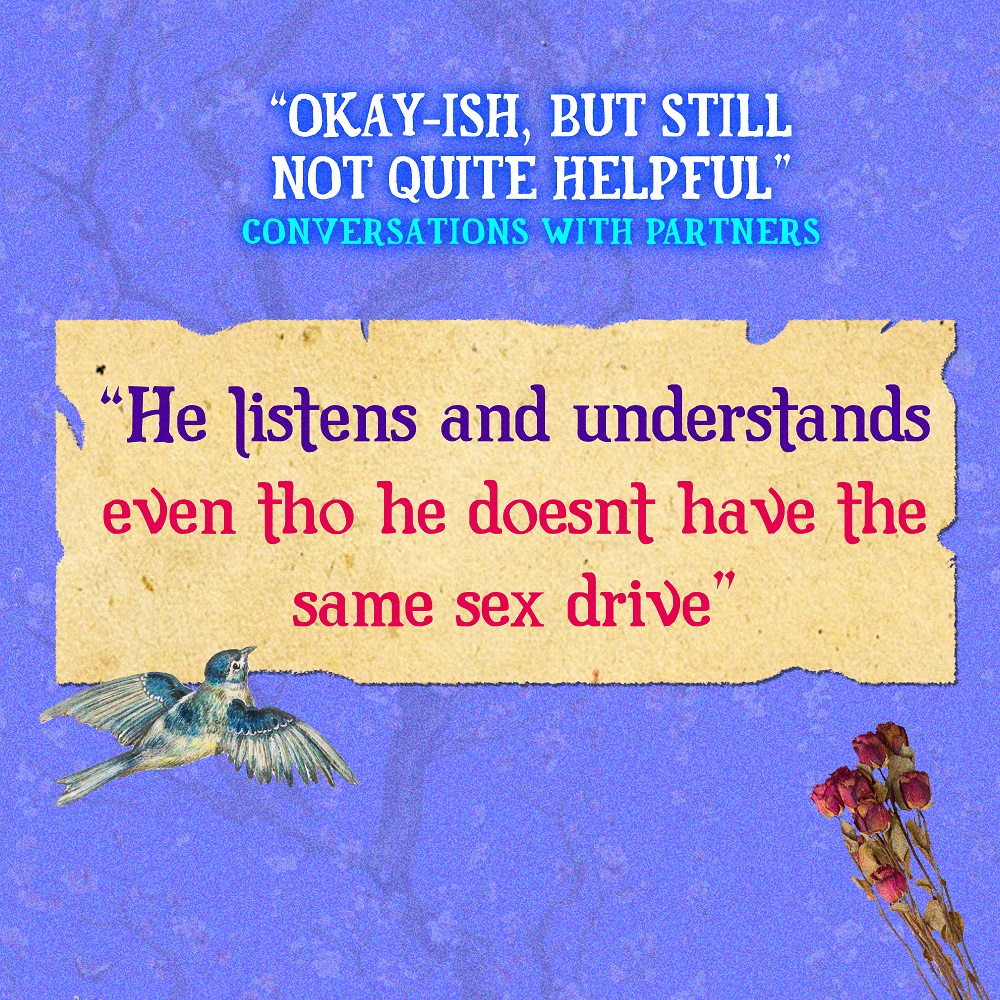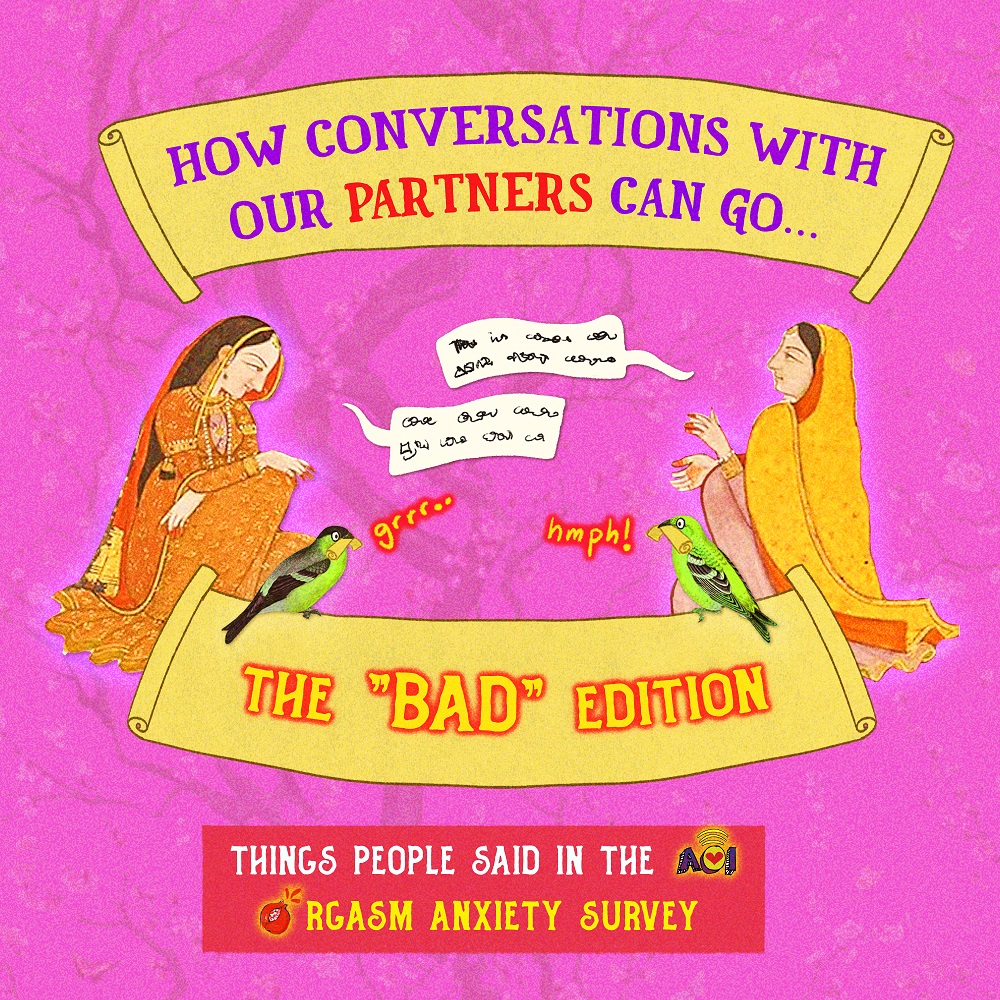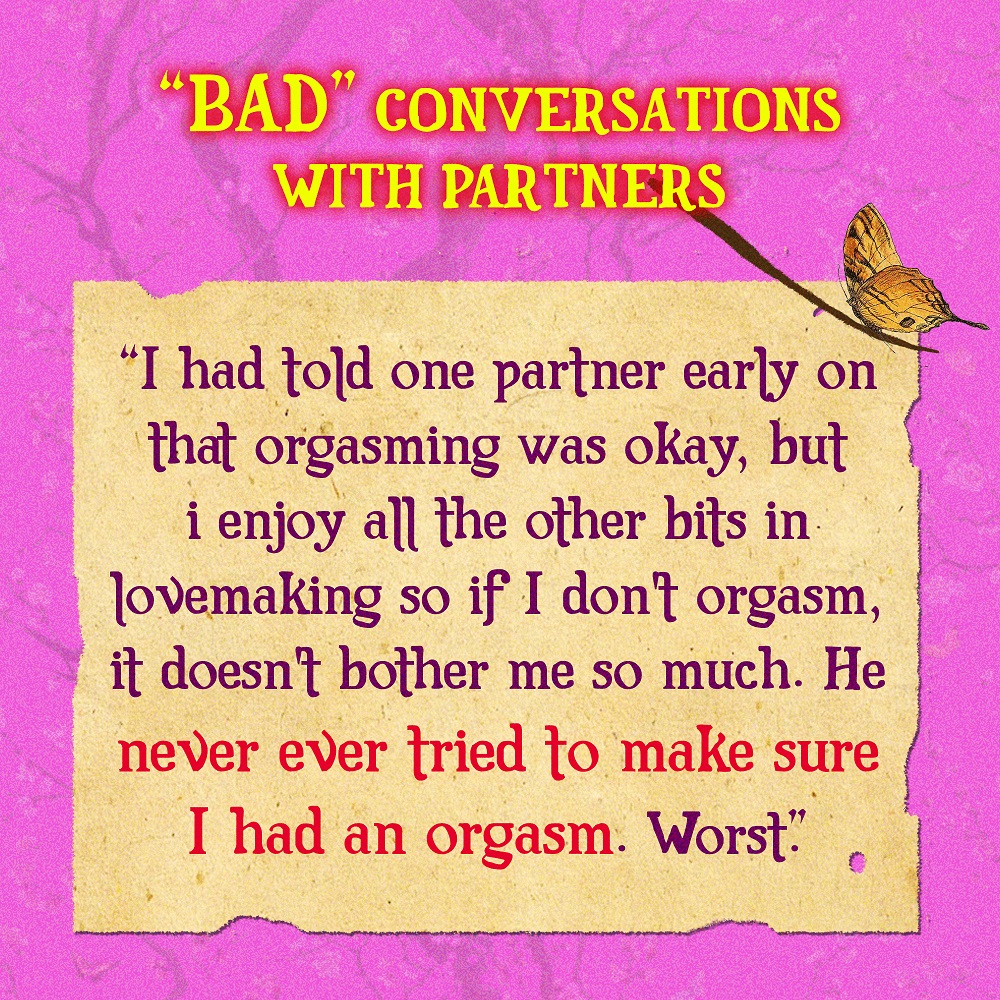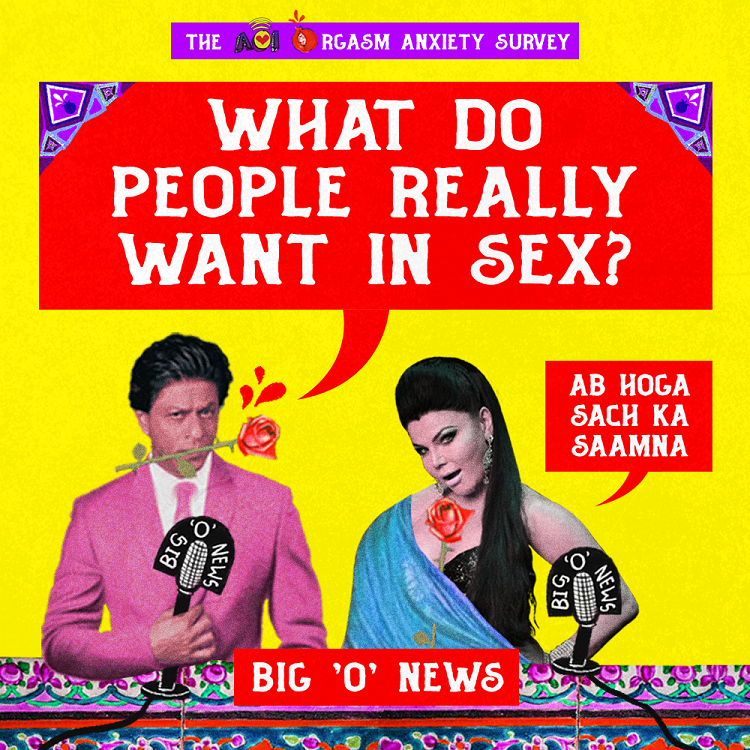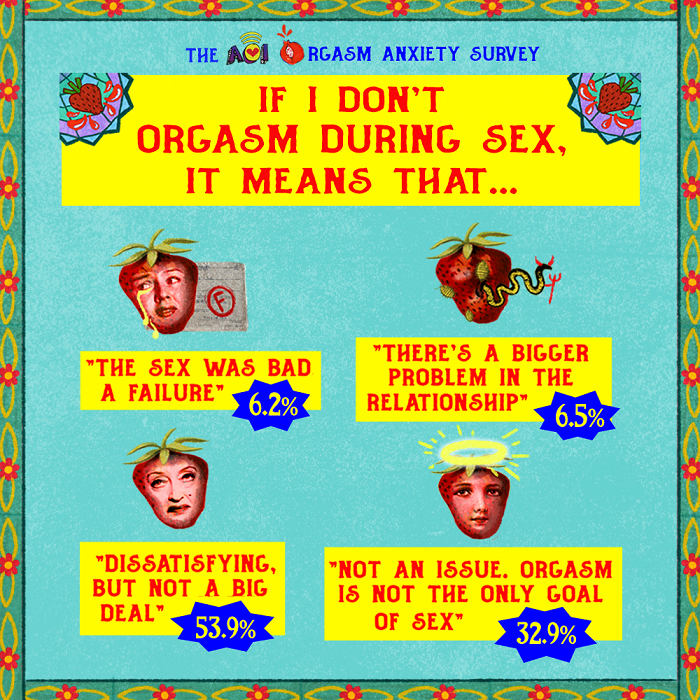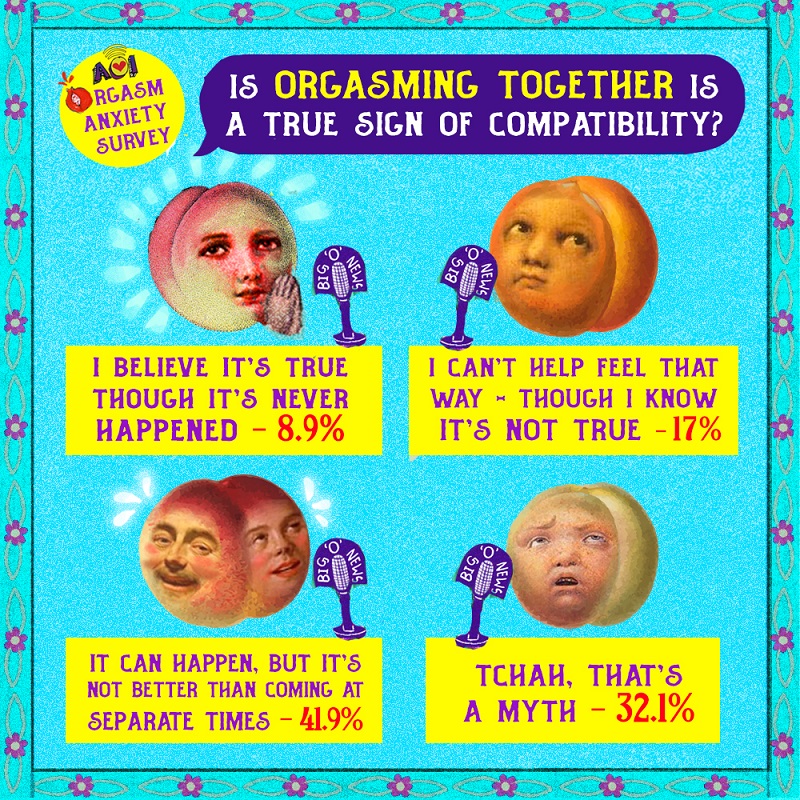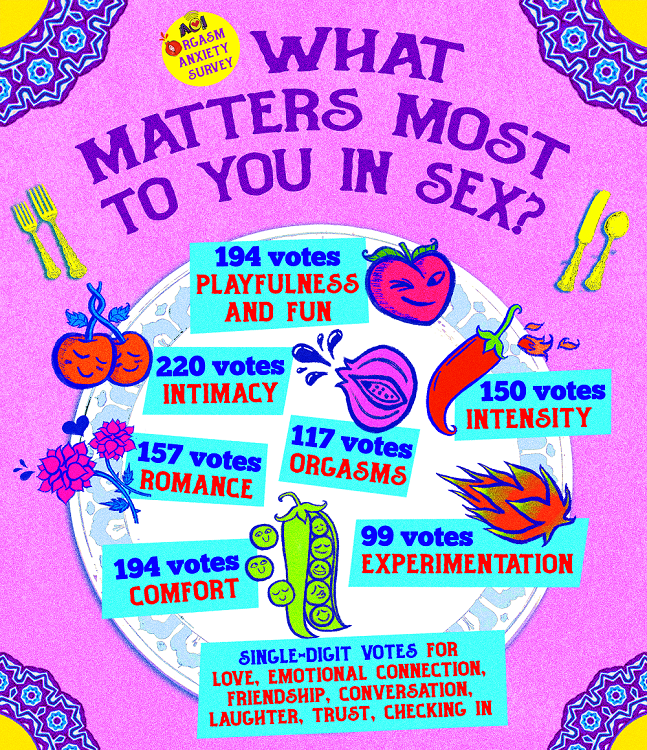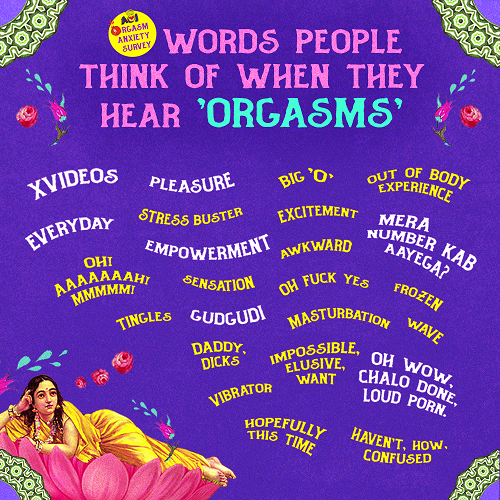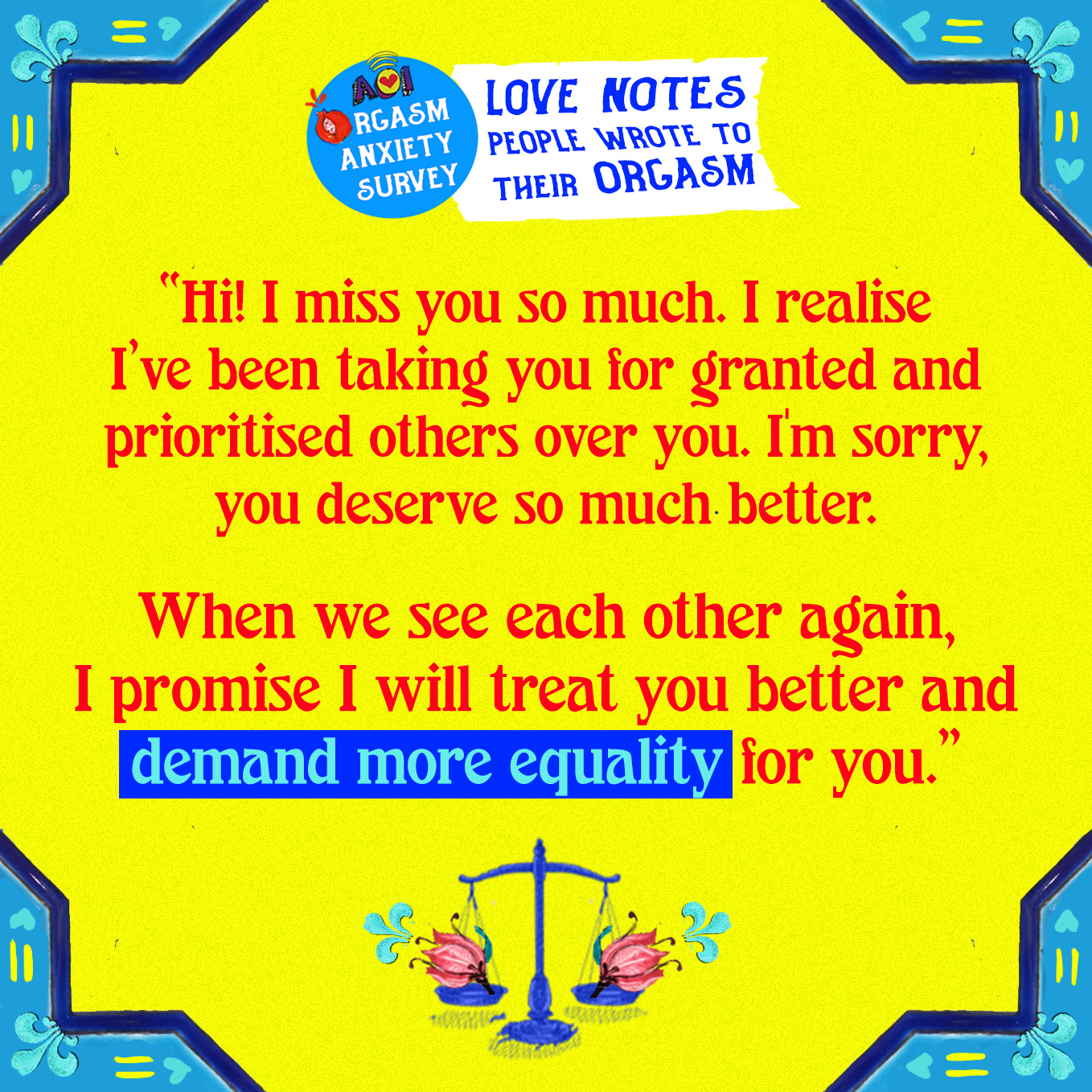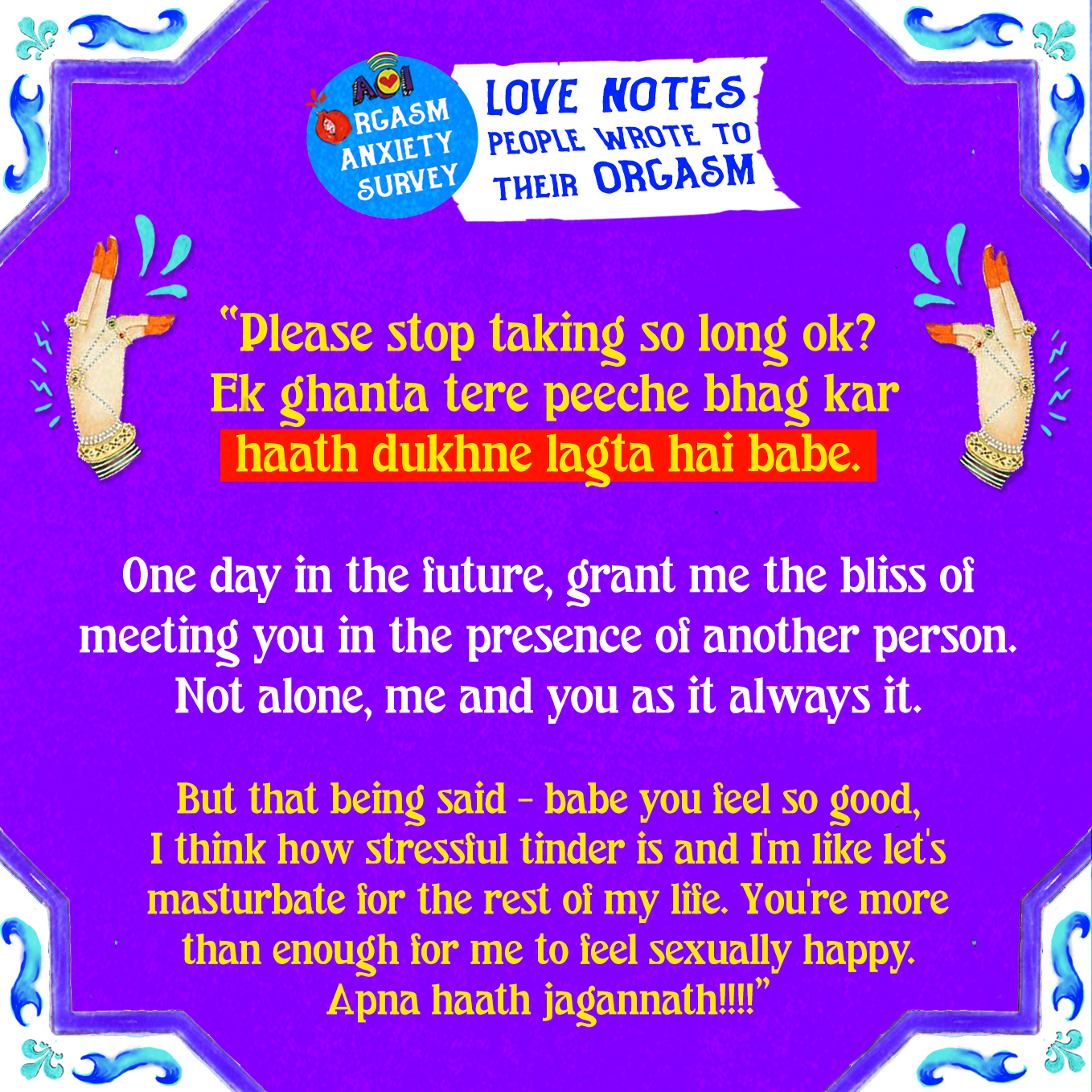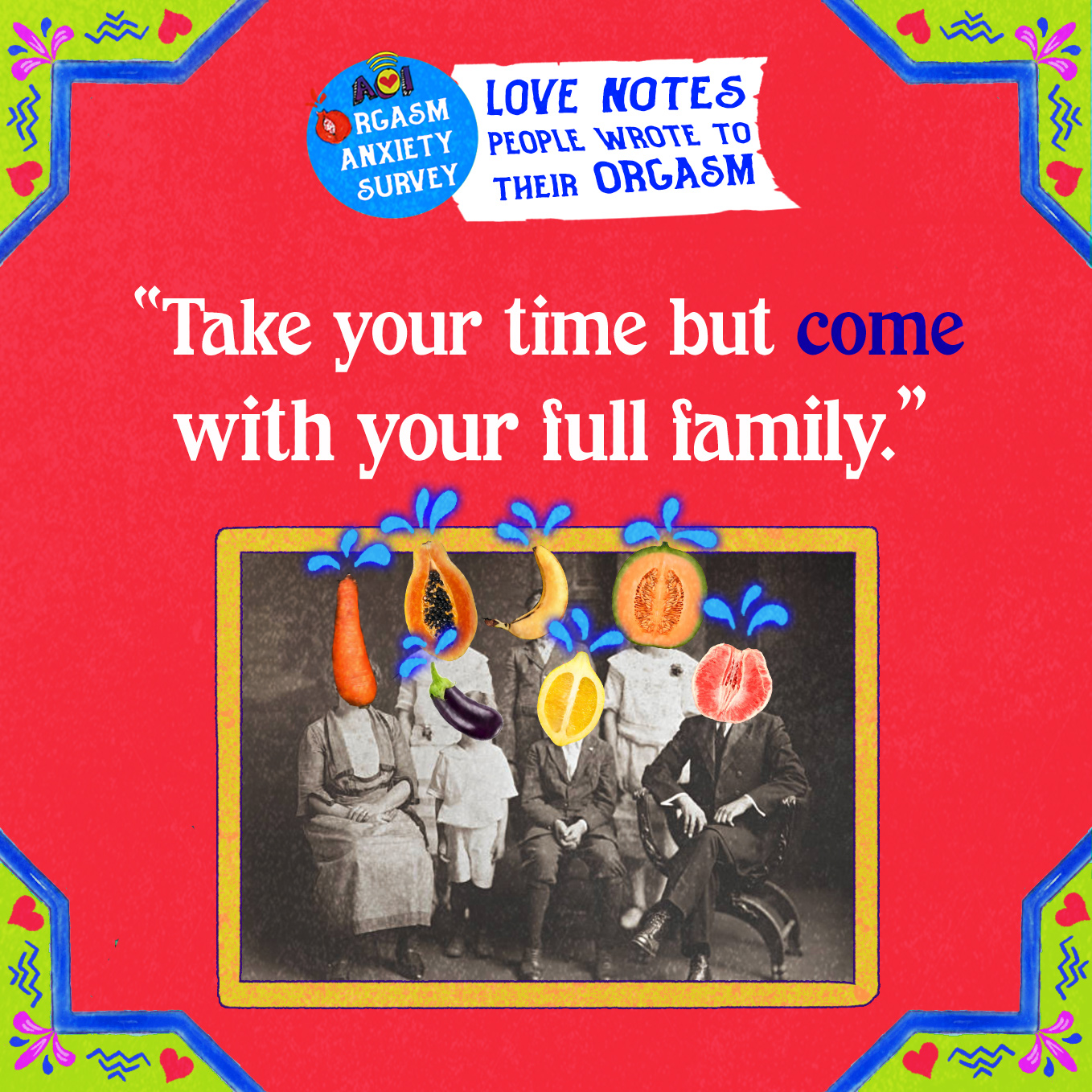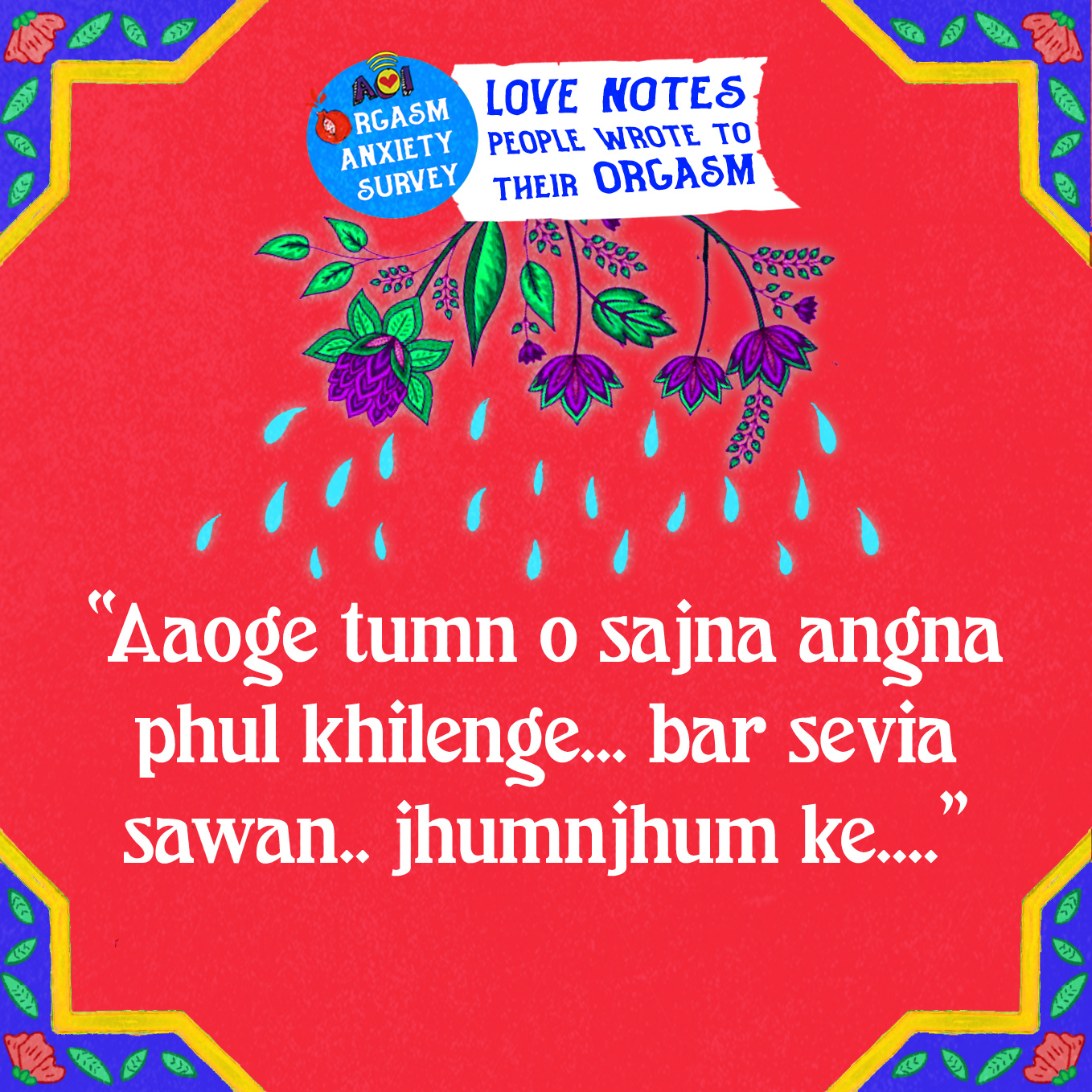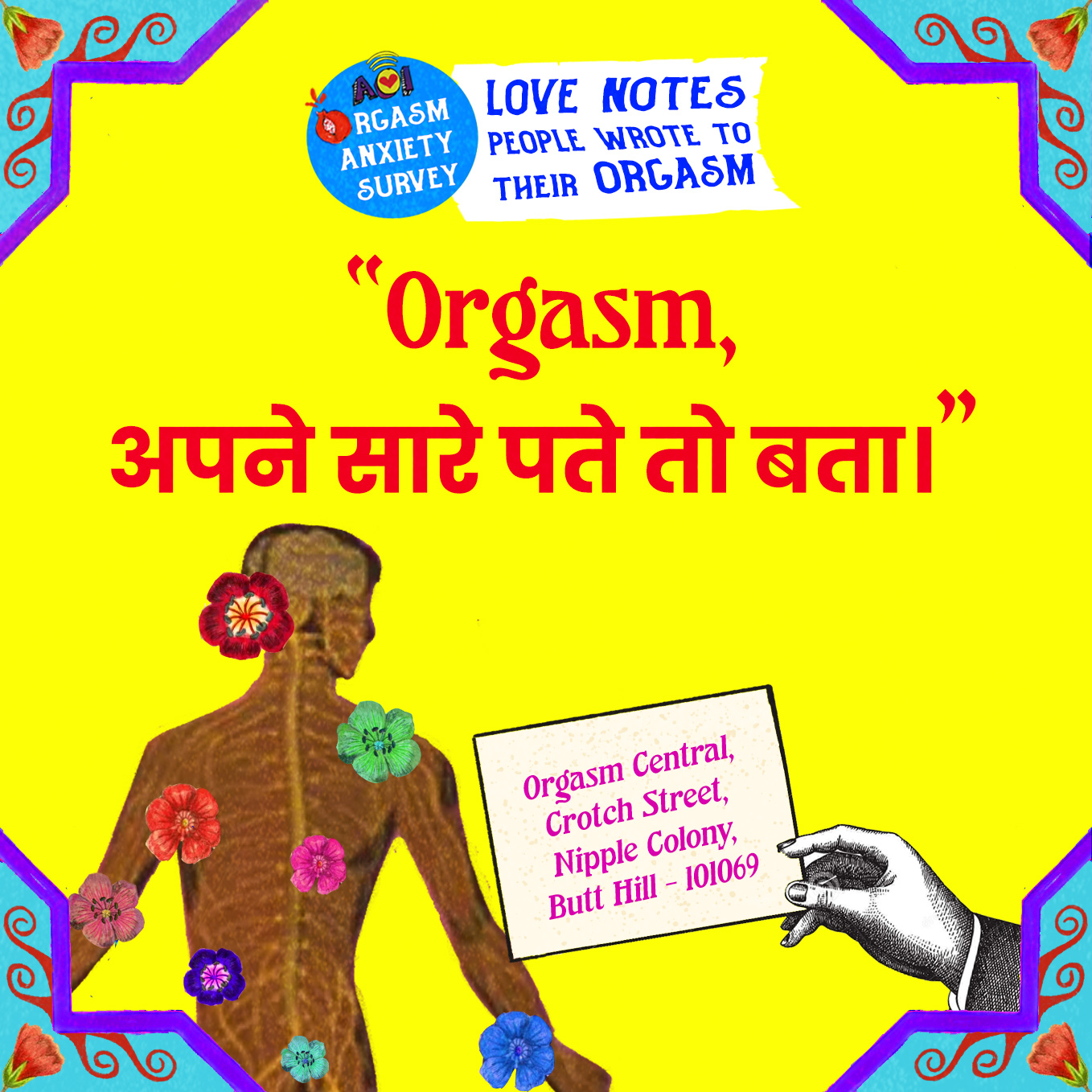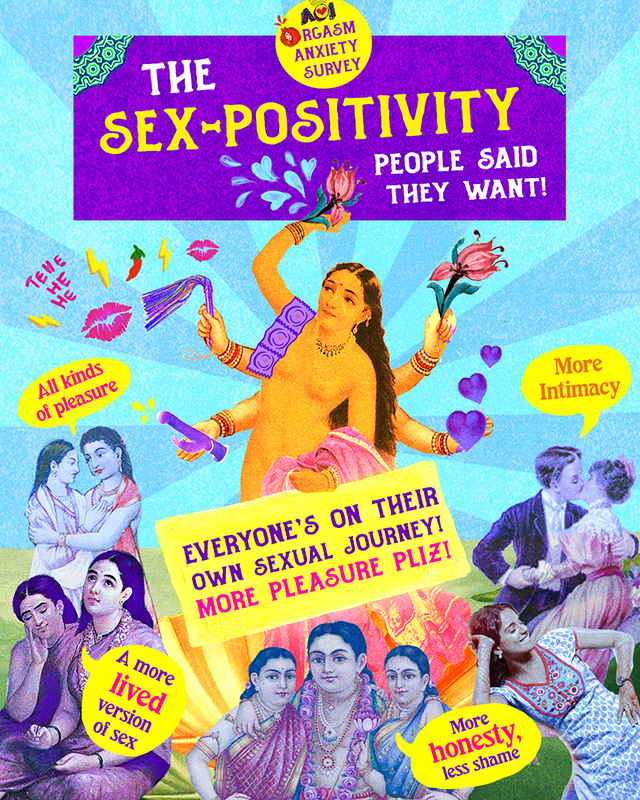We live in times that hail sexual liberation (it’s always coming, lucky thing) and social media slogans of orgasm equality. But, Agents, we have also been hearing murmurs about ‘orgasm anxiety’ from you for some time now.
We decided to explore these murmurs, to try and understand what people were talking about (or not talking about) when they say ‘orgasm anxiety’. And so - The AOI Orgasm Anxiety Survey.The responses revealed a fairly complicated picture.
82% said they did have orgasms, while masturbating and/or in partnered sex. But, it was not as if these folks were not feeling anxious about orgasms.
Overall, we found that 68.2% percent said they felt anxious about orgasms. So, if they still reported anxiety, perhaps we might ask - is orgasm sufficient to define sexual pleasure?
And while it’s one thing to talk about orgasm equality - are all orgasms actually equal?
The survey is not about who’s having orgasms and who’s not. Rather, it tells us a lot about people’s relationship with their own bodies, gender and sexuality, insecurities and desires - as well as the conversation about sex which they are surrounded by.
It also shines a bright LED-light on how there remains a lot of unease that is rooted in body image issues, gender dysphoria, mental health, physical constraints, and more.
The most intriguing discovery? The popular discourse on sex and sex-positivity emerged as one factor that was making people anxious. 41.5% people worried they’d be judged as sexually repressed or not being ‘sexually liberated enough’ for the fact that they’re having lesser orgasms. How people felt about their orgasms clearly moved beyond the tired binaries of taboo vs liberation and tradition vs modernity.
Agents, we love to give sex a good name, yes! The world of sex and pleasure keeps changing. How people respond to that also evolves. It seems to us that we need vulnerable, open-ended conversations that are less black and white and less about numbers and goals, to help us understand our sexual lives better and help us along the road to better sexual health and happiness. Kya bolti public?
So dive in!
WHO TOOK THE SURVEY?
258 people took the survey and here is how they identified themselves.
We can hear you say – is Orgasm Anxiety even… a thing?
Some folks might wonder what this hullabaloo is after all. Isn’t orgasm a good thing? Either you have it or you don’t – and you should. A 23y/o woman respondent who has orgasms most of the time with both masturbation and partnered sex definitely thought so. In her words:
“Yaar sometimes people don't have so many thoughts about orgasm. Chill na! I DON'T HAVE ANXIETY maybe that should also be an option. Why do you people assume the whole world has anxiety”
But, our survey revealed a different story.
Are most people saying that they’re having orgasms? Yes.
At the same time, a surprising number were unsure if they’ve ever had orgasms.
And pertinently - more people had orgasms on their own than with others.
It is hard to say from an online survey, if anxiety causes difficulty experiencing sexual pleasure or difficulty with pleasure makes anxiety an automatic bed-fellow. But, many who had orgasms, also felt anxious. Of the 13 people who said they’ve never had an orgasm, 10 felt anxious. Of the 34 who were not sure if they have ever had an orgasm, 15 felt anxious.
Most people were anxious about how they are perceived during sex. Some worried about body image, others about being seen as selfish, inadequate, un-cool, or too much trouble.
88 people wondered if they were capable of orgasming at all. They worried: did they not know their sexual selves well enough? Were they too quick to think the trouble lay with them?
THE ANXIETY BOX
Four main areas of anxiety emerged.
These provided a textured picture of what people are really dealing with within their sexual worlds – beyond simple notions of sexual taboo or shame. Conversations about sexuality and intimacy are constantly changing and the responses reflect the complexity of these changes.
1) OUR BODIES, OUR SELVES
Body image issues abounded as one of the leading causes of anxiety. Many expressed anxiety about undressing in front of their partners. People expressed acute self-consciousness about how their body looks and smells and how their partners think of them in bed. How their partner responds to the time they take to orgasm also appeared as a major worry.
For transpersons and non-binary persons this anxiety was multiplied by the experience of gender dysphoria.
Vaginismus, fear of vaginal tearing, pain and discomfort, and post-menopausal issues also emerged as common determinants of people’s orgasm anxieties.2) GENDER TROUBLE
The way gender determines expectations of how to behave during sex, especially for cis heterosexual men and women, featured prominently. These attitudes cut across genders. Roughly a third of the respondents expressed conventional expectations of masculinity – for instance one 26 y/o woman thought the “loss of erection for the guy” was a bummer for her.
But overall, we did not encounter conventional expectations of masculinity as strongly as men often seem to fear. For instance: Performance pressure for men might be far more rooted in social conditioning than based on what partners actually desire or even express. If only people could actually get past the public conversations about sex, to the evidence of private desires!
3) MENTAL HEALTH MATTERS
Mental health plays a huge role in intimate life. This was all too true for the responses on our survey too. For many, past trauma, like a history of abuse and/or fear of rejections, makes things tough.
Mental health does not automatically connote its toughest aspect, that is, trauma. In our hyper-mediated world, stressors and distractions are always in our heads. Some respondents admitted that factors like being distracted by the tiniest of thoughts come in their way of having an orgasm.
4) THERE’S A NEW STEREOTYPE IN TOWN: SEX-POSITIVITY. PORN IS CLOSE BEHIND AKA ‘LOG KYA KEH RAHE HAIN’
While the taboo of sex once played a part in how people responded to sex, the respondents of this online survey also conveyed an anxiety about the contemporary, online world of sex.
On the one hand, the standards set by porn and mainstream discourse like ‘orgasms are a guy thing’ not only makes people anxious about orgasms, but also creates anxieties around body image and prowess.
On the other hand, counter-intuitively, sex-positivity talk on the lines of ‘OMG your life is so sad without orgasms’ has evidently set benchmarks for what sex should mean. A majority of people felt the discomfort of coping with descriptions of people’s sex lives and orgasm stories, often heard through social media.
Things that heightened anxiety for people were:
While it is surely quite a good thing, for young people in particular, to talk about sex more openly, people expressed their fears of not being seen as ‘sex-positive’ enough – because talking openly does not always mean talking honestly.
We asked people how they felt about this statement?
The most voted option in the question on what are some popular standards or stuff people say that adds to their orgasm anxiety was: ‘People boasting about all the “gooooood sex” they’ve been having.’ Comparing ourselves to others might be the oldest source of anxiety in social life, but social media has certainly multiplied the opportunity for comparison.
This is further corroborated by responses to: Do you think other people are having better sex than you?
In response to What do you think comes in the way of you having an orgasm when you would like to have one?, someone said:
“The anxiety of not being able to have one at a moments notice. Like I know my best friend takes less than 5 mins to orgasm and I take soooo long. Sometimes more than 30 mins. I'm never sufficiently aroused, I'm always anxious, my mind gets distracted and arousal level somehow falls further even if I'm really close. And not in a sexy way. In a GOD I WAS ALMOST THERE. and then when it does happen it's like a little underwhelming sometimes idk why. Like it barely lasts a second and doesn't happen/feel like how I want it to”
Turns out orgasm frequency and quality comparison is the new and unfortunate Sharma ji k bete se seekho situation!
Maybe, it suggests that it is time to refresh our conversations on sex-positivity.
SPACE, THE FINAL FRONTIER
Sex does not happen in a vacuum. Cultural contexts and material realities also shape our most private experiences. For some respondents time and space was a problem - and this would be a familiar issue for many Indians. A few did not have enough privacy.
Two folks had very unique responses here: “cats” “people knocking on the door”
“I think I’m not in a super comfortable place when I’m doing it. So being in a stress free environment where I know i can’t be interrupted would be nice.”
TERE MERE BEECH MEIN KYA HAI? Inside the intimate and complex world of Partnered Sex
While the world enters the bedroom , and causes anxiety, the survey also revealed many underlying complexities of partnered intimacy.
“In partnered sex, I sometimes worry about taking too much time to come” was a common concern.
Many responses indicate that the idea of a race to an orgasm is not just about comparing oneself to others, but also to one’s own partner's rhythm.
Perhaps this is not so surprising. Sex continues to be predominantly defined as peno-vaginal penetration – in keeping with the propaganda of heterosexual patriarchy. In that linear definition of sex, orgasms become the finish line that one must reach in the right way and at the right time. to prove you are having the right kind of sex. Quite like passing the board exam with 99% marks to feel like you are socially acceptable.
Here is what the numbers looked like in response to the question:
People confided that not being able to orgasm, while their partner does so, has a negative effect. Some indicated a sense of guilt for not having orgasmed “efficiently” and a desire to validate their partners by orgasming.
Many responses were about partners not understanding and/or catering to their sexual needs.
And that brings people right back to the loop of worrying about themselves - thinking that they are the problem.
Orgasm anxiety in partnered sex is riddled with questions about intimacies and acceptances. Many folks hesitated to talk about sex with their partners. They were worried about what the response would be like and if it would have implications for how they are perceived by their partners.
Which meant not everyone was an enthu cutlet about being asked their orgasm status by their partner.
About 40.5% of the respondents were not quite sold on:"The prospect of a partner asking you “Did you orgasm?"
57.3% said they had faked orgasms. Close to 9% said they didn’t even bother to pretend because their response was immaterial.
It’s not that everyone was avoiding ‘the talk’.
We asked: Have you tried to discuss these anxieties with your partner(s)? Tell us how it went…
As a 28y/o bisexual woman who can always orgasm while masturbation but only sometimes during sex said, “Discussions about sex end up either very badly or in mutual understanding”
While there is so much upheaval about orgasming or not during sex, and then discussing or not discussing this with one’s partner, perhaps there is another question to ask:
We wondered what would happen if, say, in our parallel lives, we could all speak about our own sexual-ness as opposed to some falsely objective notion of ‘sex’. Would that provide a different story of sex, one in which orgasms are not the lead character gloating under the spotlight? Would that help us see sex more pleasurably? Would a more expansive view of sexual pleasure- not only orgasm as statistical proof of pleasure -lessen anxieties ? Would it, in fact, lead to more orgasms even?
When we asked people what really mattered to them in sex, it unlocked a different vision of sexual liberation and joy in sex.
We asked people to write notes to their orgasms. Here are some samples:
Turns out, unsurprisingly, people really reallyyyyy desire more comfort, cuddles, intimacy, playfulness and intensity, and foreplay, for orgasms to happen too.
SOME OF THE THINGS PEOPLE SAID HERE WERE -
“It's not the be all and end all of sexual experiences. Intimacy is something that I find more pleasure in. Orgasming is amazing though. If it happens all the time then oh la la!”
“I think by getting to know stories like that of mine, where people started masturbating in their late 20's, confused all about it and experienced intimate relation very late. But that it is okay and there are ways to figure and get what you want.”
“If other dimensions of sex are exciting and playful and sensual and it's not always centred on penetration, then there will be less anxiety around orgasms!”
“It’s different for every one and it’s ok if one doesn’t have one. But it’s important to understand the reason and see how we can talk about it to partners if involved. Also understanding one’s body and be able to experiment is important without having to feel guilty or ashamed.”
"general awareness that's it's not the end goal. and stepping into the stereotype I'm sorry...but im gay so..kind of very chill and confident with all that."
“Adequate sex and general intimacy. Orgasms seem great and all but so long as I know that I am loved and considered fuckable and the sex is good, I can live without them.”
The
results of the survey indicate that a sex-positive culture, isn't
simply about destinations and targets. We need to create more honest,
more varied, more life-like conversations about sex and intimacy; make
it possible for people to share their sexual experiences, their doubts
and desires to co-create a vision of positive and mutual sexuality
beyond slogans. A pleasure positive sex-education and a more pleasurable
conversation, would go a long way in helping this to happen.
Manifesting <3


